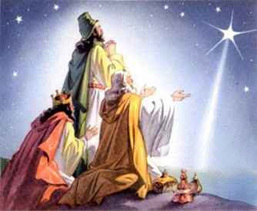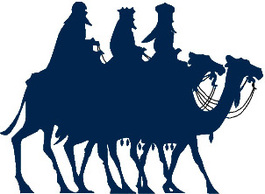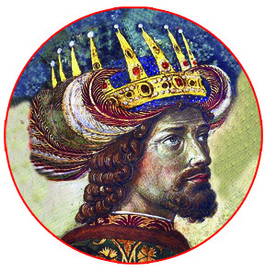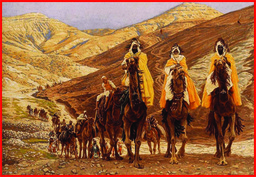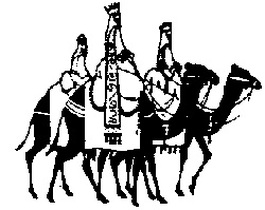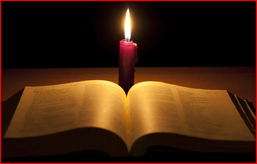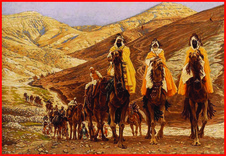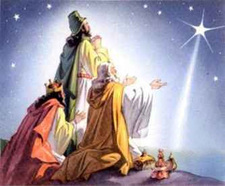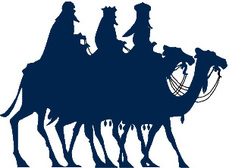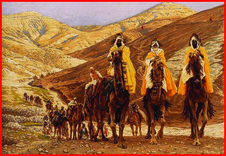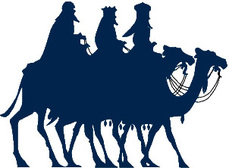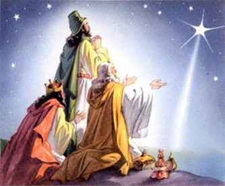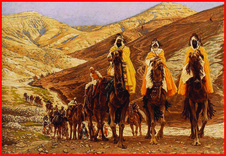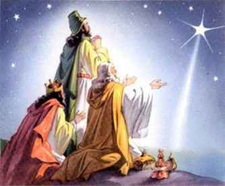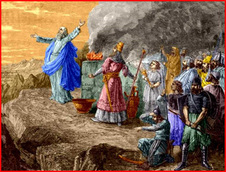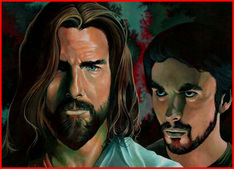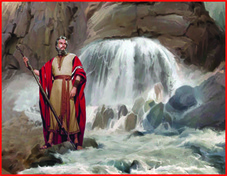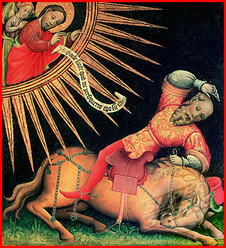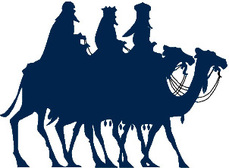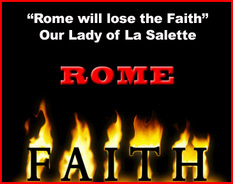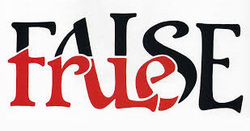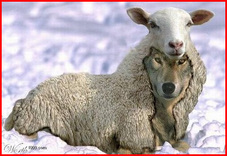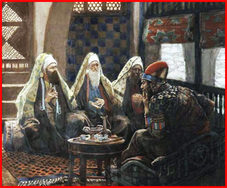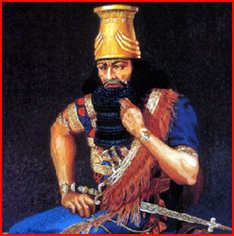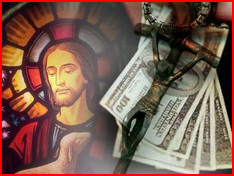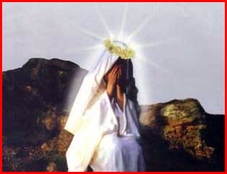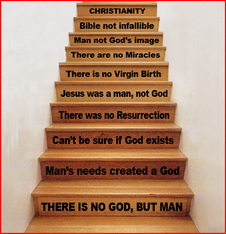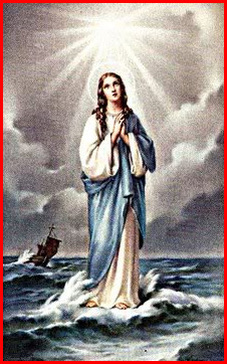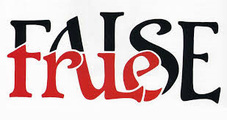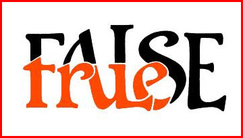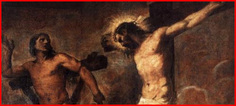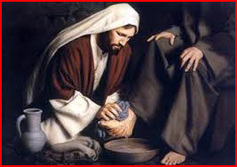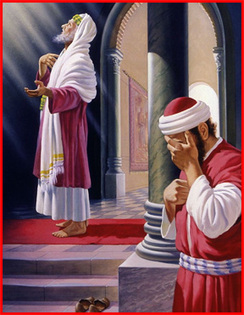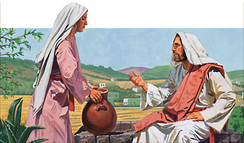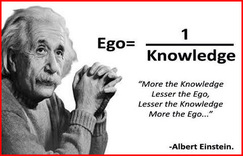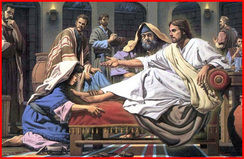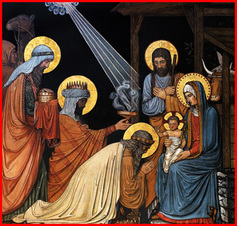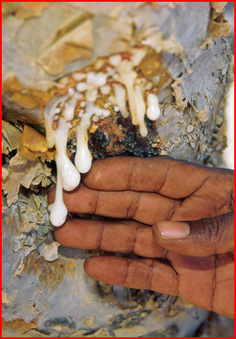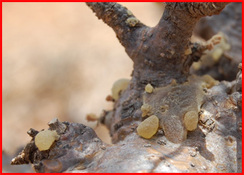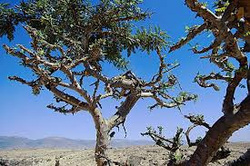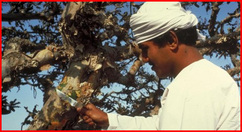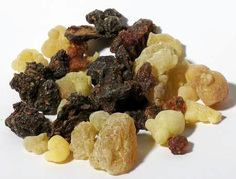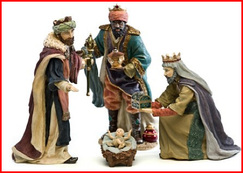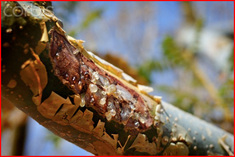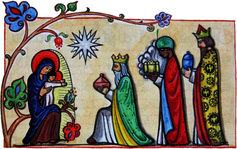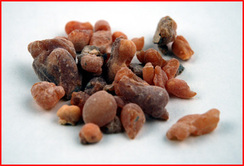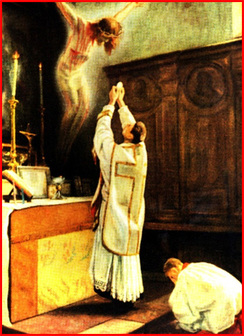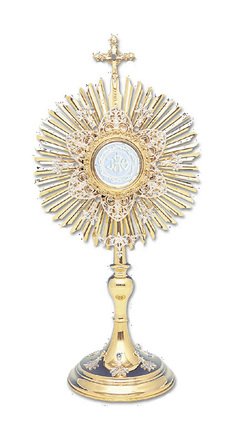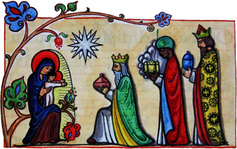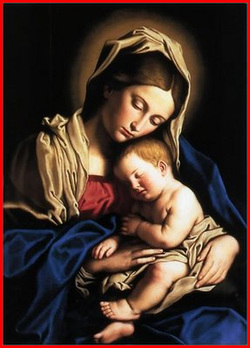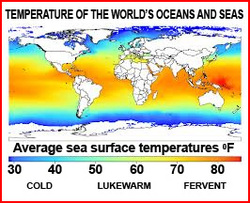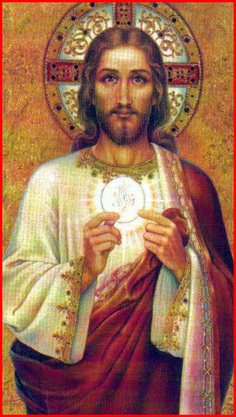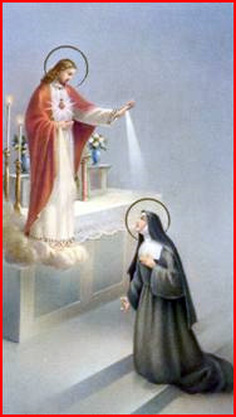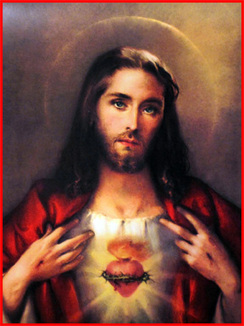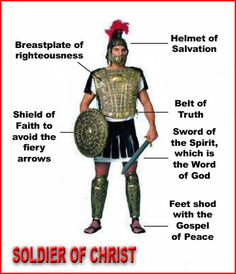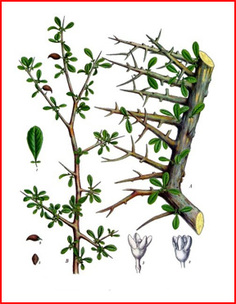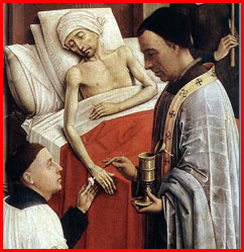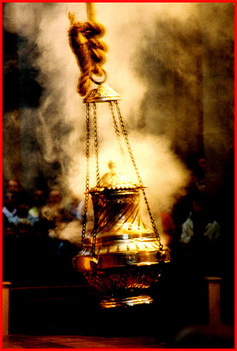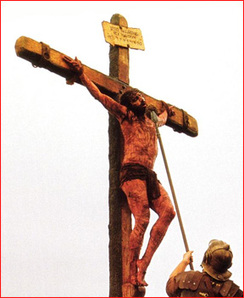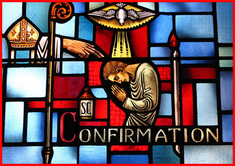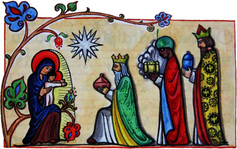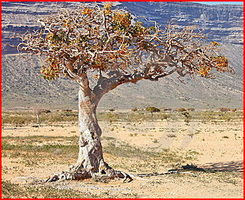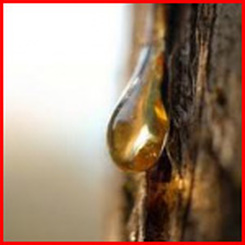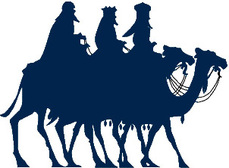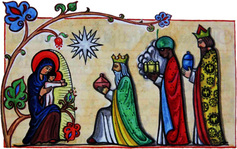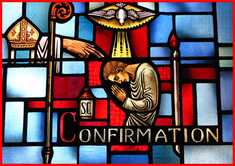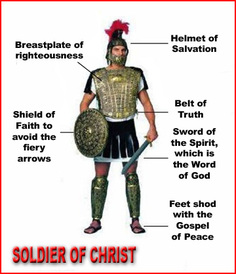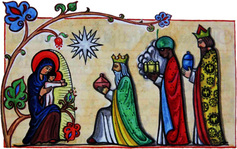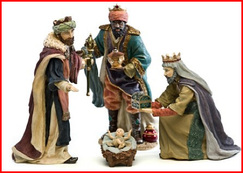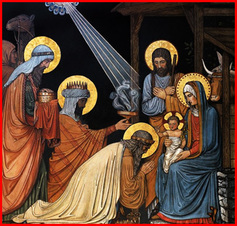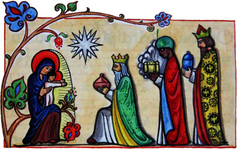| Devotion to Our Lady |
|
- Homepage
-
Daily Thoughts
- 2023 October Daily Thoughts
- Daily Thoughts Lent 2020
- Daily Thoughts for Advent 2019
- Daily Thoughts for October 2019
- Daily Thoughts for September 2019
- Daily Thoughts for August 2019
- Daily Thoughts for July
- Daily Thoughts for June
- Daily Thoughts for Easter 2019
- Daily Thoughts for Lent 2019
- Daily Thoughts for Christmas
- Daily Thoughts Easter 2022
- Sacred Heart
- Holy Ghost
-
Spiritual Life
- Holy Mass Explained
- First Friday Devotions
- First Saturday Devotions
- The Mercy of God
- Vocations
- The Path Everyone Must Walk >
- Gift of Failure
- Halloween or Hell-O-Ween?
- Ignatian Spiritual Exercises >
- Meditation is Soul-Saving
- Spiritual Communion
- Miraculous Medal
- Enrollment in Miraculous Medal
- St. Benedict Medal
- Holy Water
- Advice on Prayer
- Your Daily Mary
-
Prayers
- September Devotions
- Seven Sorrows of Our Lady
-
Novenas
>
- NV-Help of Christians
- NV-Nativity of Our Lady
- NV-Seven Sorrows
- NV- Sorrowful Heart
- NV-Pope St Pius X
- NV-La Salette
- NV-St Michael Archangel
- NV-Immaculate Heart
- NV-Assumption
- NV-Novena for Fathers
- NV-Novena for Your Mother
- NV-St Raphael Archangel
- NV-Souls in Purgatory
- NV-All Saints Day
- NV-Christ the King
- NV-Divine Motherhood
- NV-Guardian Angels
- NV-Rosary
- NV-Mirac Med
- NV- Imm Conc
- NV - Guadalupe
- NV - Nativity of Jesus
- NV-Epiphany
- NV-OL Good Success
- NV-Lourdes
- NV-St Patrick
- NV-St Joseph
- NV-Annunciation
- NV-St Louis de Montfort
- NV-OL Good Counsel
- NV-Last Supper
- NV-Passion
- NV-Pentecost
- NV-Ascension
- NV-Sacred Heart
- NV-Sacred Heart & Perpetual Help
- NV-Corpus Christi
- NV-OL of Perpetual Help
- NV-Queenship BVM
- NV-OL of Mount Carmel
- NV-St Mary Magdalen
- NV- Im Hrt
- August Devotions to IHM
- Immaculate Heart of Mary
- Litany of Dependence
- Prayers to St Mary Magdalen
- Prayers in Times of Sickness Disease & Danger
- Holy Souls in Purgatory
- Meditations on the Litany of Our Lady
- Special Feast Days
- Prayers to Mary (Mon-Sun)
- Litanies to Our Lady >
- Various & Special Needs
- Our Lady of the Rosary
- Our Lady of Mt. Carmel
- Our Lady of Perpetual Help
- Our Lady of Guadalupe
- Other titles of Our Lady
-
Rosary
- Downloads
- Consecration
- Easter Season
-
Holy Week
- Last Seven Words of Jesus >
- Characters of Passion >
- The Last Days of Christ
- Before Palm Sunday
- Palm Sunday
- Monday in Holy Week
- Tuesday in Holy Week
- Wednesday in Holy Week
- Holy Thursday (Last Supper)
- Holy Thursday (Agony & Arrest)
- Night Vigil with Christ
- Good Friday (Pilate & Herod)
- Good Friday (Way of Cross & Crucifixion)
- Saturday in Holy Week
-
Lent
- Ideas for Lent
- Daily Lenten Planner
- Daily Lenten Liturgy
- From Cold to Hot
- Lent with Aquinas
- Lent with Dom Gueranger
- Virtues for Lent
- History of Penance
- How Expensive is Sin?
- Confession of Sins
- Letter to Friends of the Cross
- Sermons for Lent
- Stations of the Cross >
- Lenten Prayers
- 7 Penitential Psalms
- Lenten Psalms SUN
- Lenten Psalms MON
- Lenten Psalms TUE
- Lenten Psalms WED
- Lenten Psalms THU
- Lenten Psalms FRI
- Lenten Psalms SAT
- Lenten Laughs
- Septuagesima
-
Christmas
- Epiphany Explained
- Suggestions for Christmas
- Food For Thought
- Christmas with Aquinas
- Christmas with Dom Gueranger
- Christmas Prayers
- Candles & Candlemas
- Christmas Sermons
- Christmas Prayers SUN
- Christmas Prayers MON
- Christmas Prayers TUE
- Christmas Prayers WED
- Christmas Prayers THU
- Christmas Prayers FRI
- Christmas Prayers SAT
- Twelve Days of Christmas >
-
Advent Journey
- Purgatory
- Christ the King
- Legion of Mary
- Scapular
-
Saints
-
Martyrs for the Faith
>
- Your Daily Martyr >
- All 365 Days of Martyrs
- Cristeros
- St Valentine & Valentine's Day
- Martyrs--Thomas Becket
- Martyrs--John the Apostle
- Holy Machabees
- Age of Martyrdom
- Carmelites of Compiegne
- Martyrs--Peter & Paul
- Martyrs--John the Baptist
- Martyrs--Andrew
- Martyrs--James the Great
- Martyrs--North American
- Martyrs--Seven Holy Sleepers
- Martyrs--Afra
- School of Martyrdom
- Martyrs--Christina
- Desert Saints >
- Saints for Sinners >
- Saints of Mary >
- History of All Saints Day
-
Martyrs for the Faith
>
- Precious Blood
- Synod 2023
-
Catechism
- Catechism Lesson 1
- Catechism Lesson 2
- Catechism Lesson 3
- Catechism Lesson 4
- Catechism Lesson 5
- Catechism Lesson 6
- Catechism Lesson 7
- Catechism Lesson 8
- Catechism Lesson 9
- Catechism Lesson 10
- Catechism Lesson 11
- Catechism Lesson 12
- Catechism Lesson 13
- Catechism Lesson 14
- Catechism Lesson 15
- Catechism Lesson 16
- Catechism Lesson 17
- Catechism Lesson 18
- Catechism Lesson 19
- Catechism Lesson 20
- Catechism Lesson 21
- Catechism Lesson 22
- Bible Study
-
Calendar
- Miracles
- Apparitions
- Shrines
- Prophecies
- Angels Homepage
- Hell
-
Church Crisis
- Conspiracy Theories
- Amazon Synod 2019 >
- Liberalism & Modernism
- Modernism--Encyclical Pascendi
- Modernism & Children
- Modernism--Documents
- The Francis Pages
- Church Enemies on Francis
- Francis Quotes
- Amoris Laetitia Critique
- Danger of Ignorance (Pius X)
- Restore all In Christ (Pius X)
- Catholic Action (Pius X)
- Another TITANIC Disaster?
- The "Errors of Russia"
- CRISIS PRAYERS
- Election Novena 2024
- The Anger Room
- War Zone
- Life of Mary
- Spiritual Gym
- Stupidity
- Coronavirus and Catholicism
- History & Facts
- Books
- Catholic Family
- Children
- Daily Quiz
-
Novena Church & Pope
- Day 01 Church-Pope Novena
- Day 02 Church-Pope Novena
- Day 03 Church-Pope Novena
- Day 04 Church-Pope Novena
- Day 05 Church-Pope Novena
- Day 06 Church-Pope Novena
- Day 07 Church-Pope Novena
- Day 08 Church-Pope Novena
- Day 09 Church-Pope Novena
- Day 10 Church-Pope Novena
- Day 11 Church-Pope Novena
- Day 12 Church-Pope Novena
- Day 13 Church-Pope Novena
- Day 14 Church-Pope Novena
- Day 15 Church-Pope Novena
- Day 16 Church-Pope Novena
- Day 17 Church-Pope Novena
- Day 18 Church-Pope Novena
- Day 19 Church-Pope Novena
- Day 20 Church-Pope Novena
- Day 21 Church-Pope Novena
- Day 22 Church-Pope Novena
- Day 23 Church-Pope Novena
- Day 24 Church-Pope Novena
- Day 25 Church-Pope Novena
- Day 26 Church-Pope Novena
- Day 27 Church-Pope Novena
- Day 28 Church-Pope Novena
- Day 29 Church-Pope Novena
- Day 30 Church-Pope Novena
- Day 31 Church-Pope Novena
- Day 32 Church-Pope Novena
- Day 33 Church-Pope Novena
- Day 34 Church-Pope Novena
- Day 35 Church-Pope Novena
- Day 36 Church-Pope Novena
- Day 37 Church-Pope Novena
- Day 38 Church-Pope Novena
- Day 39 Church-Pope Novena
- Day 40 Church-Pope Novena
- Day 41 Church-Pope Novena
- Day 42 Church-Pope Novena
- Day 43 Church-Pope Novena
- Day 44 Church-Pope Novena
- Day 45 Church-Pope Novena
- Day 46 Church-Pope Novena
- Day 47 Church-Pope Novena
- Day 48 Church-Pope Novena
- Day 49 Church-Pope Novena
- Day 50 Church-Pope Novena
- Day 51 Church-Pope Novena
- Day 52 Church-Pope Novena
- Day 53 Church-Pope Novena
- Day 54 Church-Pope Novena
- Penance Novena
- Daily WeAtheR Forecast
CLICK BELOW FOR THE NOVENA OF YOUR CHOICE (not all links are activated)
| PRAYERS (main page) | NOVENAS (main page) | EPIPHANY OF OUR LORD Jan 6 | OUR LADY OF GOOD SUCCESS Feb 2 | OUR LADY OF LOURDES Feb 11 | | ST. PATRICK Mar 17 | ST. JOSEPH Mar 19 | ANNUNCIATION March 25 | LAST SUPPER | PASSION OF OUR LORD | OUR LADY OF SORROWS Passiontide |
| OUR LADY OF GOOD COUNSEL Apr 26 | ST. LOUIS DE MONTFORT Apr 28 | QUEENSHIP OF MARY May 31 | ASCENSION OF OUR LORD | PENTECOST | | CORPUS CHRISTI | SACRED HEART | SACRED HEART & OUR LADY OF PERPETUAL HELP June 27 | OUR LADY OF PERPETUAL HELP June 27 |
| OUR LADY OF MT. CARMEL July 16 | ST. MARY MAGDALEN Jul 22 | ASSUMPTION Aug 15 | IMMACULATE HEART OF MARY Aug 22 Version 1 |
| IMMACULATE HEART Aug 22 Version 2 | POPE ST. PIUS X Sep 3 | NATIVITY OF OUR LADY Sept 8 | SEVEN SORROWS OF OUR LADY Sept 15 |
| OUR LADY OF LA SALETTE Sept 19 | ST MICHAEL ARCHANGEL Sep 29 | GUARDIAN ANGELS Oct 2 | OUR LADY OF THE ROSARY Oct 7 |
| DIVINE MOTHERHOOD OF OUR LADY Oct 11 | ST. RAPHAEL ARCHANGEL Oct 24 | CHRIST THE KING | ALL SAINTS DAY | SOULS IN PURGATORY | MIRACULOUS MEDAL Nov. 27 | IMMACULATE CONCEPTION Dec 8 | OUR LADY OF GUADALUPE Dec 12 | NATIVITY OF OUR LORD Dec 25 |
| NOVENA FOR MOTHERS | NOVENA FOR FATHERS |
| OTHER TITLES OF OUR LADY |
| PRAYERS (main page) | NOVENAS (main page) | EPIPHANY OF OUR LORD Jan 6 | OUR LADY OF GOOD SUCCESS Feb 2 | OUR LADY OF LOURDES Feb 11 | | ST. PATRICK Mar 17 | ST. JOSEPH Mar 19 | ANNUNCIATION March 25 | LAST SUPPER | PASSION OF OUR LORD | OUR LADY OF SORROWS Passiontide |
| OUR LADY OF GOOD COUNSEL Apr 26 | ST. LOUIS DE MONTFORT Apr 28 | QUEENSHIP OF MARY May 31 | ASCENSION OF OUR LORD | PENTECOST | | CORPUS CHRISTI | SACRED HEART | SACRED HEART & OUR LADY OF PERPETUAL HELP June 27 | OUR LADY OF PERPETUAL HELP June 27 |
| OUR LADY OF MT. CARMEL July 16 | ST. MARY MAGDALEN Jul 22 | ASSUMPTION Aug 15 | IMMACULATE HEART OF MARY Aug 22 Version 1 |
| IMMACULATE HEART Aug 22 Version 2 | POPE ST. PIUS X Sep 3 | NATIVITY OF OUR LADY Sept 8 | SEVEN SORROWS OF OUR LADY Sept 15 |
| OUR LADY OF LA SALETTE Sept 19 | ST MICHAEL ARCHANGEL Sep 29 | GUARDIAN ANGELS Oct 2 | OUR LADY OF THE ROSARY Oct 7 |
| DIVINE MOTHERHOOD OF OUR LADY Oct 11 | ST. RAPHAEL ARCHANGEL Oct 24 | CHRIST THE KING | ALL SAINTS DAY | SOULS IN PURGATORY | MIRACULOUS MEDAL Nov. 27 | IMMACULATE CONCEPTION Dec 8 | OUR LADY OF GUADALUPE Dec 12 | NATIVITY OF OUR LORD Dec 25 |
| NOVENA FOR MOTHERS | NOVENA FOR FATHERS |
| OTHER TITLES OF OUR LADY |
NOVENA IN PREPARATION FOR THE EPIPHANY OF OUR LORD JESUS CHRIST
The prayers and meditations are posted chronologically.
Scroll down to the bottom of the page for the latest day's prayers and meditations.
Scroll down to the bottom of the page for the latest day's prayers and meditations.
What is a Novena?
A novena is a traditional devotion consisting of specific prayers recited on nine successive days. Besides being a form of praise, a novena is frequently offered for a particular intention. The first novena took place in the Cenacle, during the nine days preceding Pentecost, or the coming of the Holy Ghost. As a regular popular custom, this practice began in 12th century Christianity and continues to be beneficial today as a way of praying for healing, protection or other blessings for ourselves or others.
This particular novena is prayed to God in honor of and thanksgiving for the Epiphany or Manifestation of His Only-Begotten Son, Our Lord Jesus Christ. In praying this Novena, as in the case of all prayer, it is good to begin by opening ourselves wholeheartedly to God's will, offering a simple act of trust in God's wisdom and in His providential love for us all, that disposes all things for the ultimate benefit of our souls and their salvation.
How to Pray This Novena
This novena is based on the history of the events leading up to the Epiphany of Our Lord Jesus Christ in Bethlehem. Each day of the novena is divided into the following parts: (1) a quote from Scripture; (2) the actual words spoken by Our Lady to saints and mystics concerning the events leading up to the Epiphany; (3) relevant passages from the accounts of the events as revealed to the saints and mystics; (4) a Meditation; (5) a Prayer; (6) after mentioning your intention, pray the Our Father and the Hail Mary; (7) a Closing Prayer.
A novena is a traditional devotion consisting of specific prayers recited on nine successive days. Besides being a form of praise, a novena is frequently offered for a particular intention. The first novena took place in the Cenacle, during the nine days preceding Pentecost, or the coming of the Holy Ghost. As a regular popular custom, this practice began in 12th century Christianity and continues to be beneficial today as a way of praying for healing, protection or other blessings for ourselves or others.
This particular novena is prayed to God in honor of and thanksgiving for the Epiphany or Manifestation of His Only-Begotten Son, Our Lord Jesus Christ. In praying this Novena, as in the case of all prayer, it is good to begin by opening ourselves wholeheartedly to God's will, offering a simple act of trust in God's wisdom and in His providential love for us all, that disposes all things for the ultimate benefit of our souls and their salvation.
How to Pray This Novena
This novena is based on the history of the events leading up to the Epiphany of Our Lord Jesus Christ in Bethlehem. Each day of the novena is divided into the following parts: (1) a quote from Scripture; (2) the actual words spoken by Our Lady to saints and mystics concerning the events leading up to the Epiphany; (3) relevant passages from the accounts of the events as revealed to the saints and mystics; (4) a Meditation; (5) a Prayer; (6) after mentioning your intention, pray the Our Father and the Hail Mary; (7) a Closing Prayer.
PLEASE SCROLL DOWN FOR THE CURRENT DAY
THE CONSECRATION FOR JANUARY 6TH IS AT THE BOTTOM OF THE PAGE
THE CONSECRATION FOR JANUARY 6TH IS AT THE BOTTOM OF THE PAGE
|
FIRST DAY OF THE NOVENA (new meditations posted each day)
Theme: Being Alert To and Responding To Signs from Heaven Holy Scripture Says: "We have seen His star in the east" (Matthew 2:2). The Saints and Mystics Say: The Venerable Mary of Agreda writes: "Other angels were delegated to bring the news to Zachary, Simeon and Anne, the prophetess, and to some other just and holy people, who were worthy to be trusted with this new mystery of our Redemption; for as the Lord found them prepared to receive this news with gratitude and with benefit to themselves, He considered it a just due to their virtue not to hide from them the blessing conferred upon the human race. Although not all the just upon earth were informed at that time of this sacrament; yet in all of them were wrought certain divine effects in the hour in which the Savior of the world was born. For all the just felt in their hearts a new and supernatural joy, though they were ignorant of its cause. "There were not only movements of joy in the angels and in the just, but also wonderful movements in the insensible creatures; for all the influences of the planets were renovated and enlivened. The sun much accelerated its course; the stars shone in greater brightness ; and for the Magi kings was formed that wonderful star, which showed them the way to Bethlehem (Matthew 2:2). Many trees began to bloom and others to produce fruit. Some temples of the idols were overthrown; and in others the idols were hurled down and their demons put to flight. "These wonders and other happenings in the world on that day men accounted for in different ways, but far from the truth. Only among the just there were many, who by divine impulse suspected or believed that God had come into the world; yet no one knew it with certainty, except those to whom it was revealed. Among these were the three Magi, to each of whom in their separate Oriental kingdoms angels of the Queen's guard were sent to inform them by interior and intellectual enlightenment that the Redeemer of the human race had been born in poverty and humility. At the same time they were inspired with the sudden desire of seeking Him and adoring Him and immediately they saw the star as a guide to Bethlehem" (Mystical City of God, Volume 2, The Incarnation). Meditation: At the arrival of sin in world, through Adam and Eve, the whole of creation and nature was changed for the worse. God's Providence would no longer be as benign and kind as it was before sin entered the world. "Wherefore as by one man sin entered into this world, and by sin death" (Romans 5:12). Prior to sin, nature would work towards preserving life; after sin entered the world, nature together with its, plants, animals and insects, no longer works in man's favor as it once did, and in many cases conspires and contributes to hastening man's demise and death through diseases, catastrophes and inclement circumstances. So it is hardly surprising that when the very Creator of creation, the sinless God-man Jesus Christ, entered His creation, that there should be wondrous happenings throughout creation, much like the miraculous events that occurred as Jesus was about to leave creation when He was dying on the Cross on Calvary. God rarely acts like "a lightning bolt out of the blue"--except for His final coming and final epiphany at the end of time! God usually makes prophecies, announces and warns ahead of time. He warned Adam and Eve, ahead of time, what would happen if they sinned. He warned Abraham about the destruction of Sodom and Gomorrha. He told Abraham about the future of his tribe, which would grow into a powerful nation. He even warned the pagan Pharaoh in Egypt, thorough a dream that Joseph would interpret, about the seven years of famine. Often He sent warnings to His Chosen People through His prophets. Through those prophets, He also gave signs by which the future Messias could be recognized. Our Lady also give warnings and mentions signs by which we will be able to tell the approach of some great event, for example "The Chastisement" that many speak of today and fear experiencing tomorrow. During her July apparition at Fatima in 1917, she says: "When you see a night illumined by an unknown light, know that this is the great sign given you by God that He is about to punish the world for its crimes by means of war, famine, and persecutions of the Church and of the Holy Father." Our Lord speaks of signs, and of those seeking signs, and to whom signs will not be given. He seems to say that signs will be only (or mainly) given to those who deserve them through a godly life. "And there came to him the Pharisees and Sadducees tempting: and they asked him to show them a sign from Heaven. But He answered and said to them: ‘When it is evening, you say, It will be fair weather, for the sky is red. And in the morning: Today there will be a storm, for the sky is red and lowering. You know then how to discern the face of the sky: and can you not know the signs of the times? A wicked and adulterous generation seeketh after a sign: and a sign shall not be given it, but the sign of Jonas the prophet.’ And He left them, and went away” (Matthew 16:1-4). In other words, "God helps those who help themselves" by living a good and holy life. That is why the Antichrist in his epiphany (the word "epiphany" means "manifestation") will fool many, even those of the true Faith and will almost fool the "elect." Jesus warns us: "For there shall arise false Christs and false prophets, and shall shew great signs and wonders, insomuch as to deceive (if possible) even the elect" (Matthew 24:24). The grace to see through the fake Messias will be given to only a few, to those who deserve it. In Scripture, Our Lord also warns us about the circumstances preceding His second Epiphany at the end of time, where He foretells that a fake Messias will arise. He then gives us signs for which we are to watching out for, in order not to be fooled by the events preceding the epiphany of the false messias. "For many will come in My Name saying, 'I am Christ!' : and they will seduce many. You shall hear of wars and rumors of wars. For nation shall rise against nation, and kingdom against kingdom; and there shall be pestilences, and famines, and earthquakes in places: See that ye be not troubled. For these things must come to pass, but the end is not yet. Now all these are the beginnings of sorrows. Then shall they deliver you up to be afflicted, and shall put you to death: and you shall be hated by all nations for My Name’s sake. And then shall many be scandalized: and shall betray one another: and shall hate one another. And many false prophets shall rise, and shall seduce many. And because iniquity hath abounded, the charity of many shall grow cold. But he that shall persevere to the end, he shall be saved. "When therefore you shall see the abomination of desolation, which was spoken of by Daniel the prophet, standing in the holy place: he that readeth let him understand. Then they that are in Judea, let them flee to the mountains: and he that is on the housetop, let him not come down to take any thing out of his house: and he that is in the field, let him not go back to take his coat. For there shall be then great tribulation, such as hath not been from the beginning of the world until now, neither shall be. And unless those days had been shortened, no flesh should be saved: but for the sake of the elect those days shall be shortened. "Then if any man shall say to you: 'Lo here is Christ!' or there, do not believe him. For there shall arise false Christs and false prophets, and shall show great signs and wonders, insomuch as to deceive (if possible) even the elect. Behold I have told it to you, beforehand. "If therefore they shall say to you: 'Behold he is in the desert!' go ye not out: 'Behold he is in the closets!' believe it not. For as lightning cometh out of the east, and appeareth even into the west: so shall the coming of the Son of man be. "And immediately after the tribulation of those days, the sun shall be darkened and the moon shall not give her light, and the stars shall fall from heaven, and the powers of heaven shall be moved; and then shall appear the sign of the Son of man [Jesus, the true Messias] in Heaven: and then shall all tribes of the earth mourn: and they shall see the Son of man coming in the clouds of heaven with much power and majesty. And He shall send His angels with a trumpet, and a great voice: and they shall gather together His elect from the four winds, from the farthest parts of the heavens to the utmost bounds of them. And from the fig tree learn a parable: when the branch thereof is now tender, and the leaves come forth, you know that summer is nigh. So you also, when you shall see all these things, know ye that it is nigh, even at the doors” (Matthew 24:5-33). [Quiet Reflection] Our Prayer: O Lady of the Epiphany through thy power, glory and love show us thy salvation; Jesus Christ. As the shepherds of Bethlehem came to thee so long ago, we come before thee at this moment. To Jesus Christ reigning in thy arms, we also bow in awe. O Queen and intimate friend, remember our poverty. We beg thee, O tender Mother to hold our hands and listen closely to the desires and needs of our hearts. Mary, remember ... [Mention Intention] We promise to amend our lives. Through thy powerful intercession obtain for us the beautiful manifestation of thy divine Son in the lives of those we pray for so much. Mystical, glorious woman crowned with stars, obtain the miracles and heavenly signs our dear ones need in order to find and embrace Jesus Christ, the King of Kings. We implore thee to reveal the treasures of thy heart to us, your poor children, at this urgent hour. Amen. O holy Magi, you were living in continual expectation of the rising of the Star of Jacob, which would announce the birth of the true Sun of justice, obtain for us an increase of faith and charity, and the grace to live in continual hope of beholding one day the light of heavenly glory and eternal joy. Pray: Say the Our Father and the Hail Mary. Final Invocation: O Mother, present at the Epiphany of Jesus our Messias and Savior, pray for us. |
|
SECOND DAY OF THE NOVENA (new meditations posted each day)
Theme: Leaving the World Behind in a Search for Christ Holy Scripture Says: "Behold, there came wise men from the east of Jerusalem, saying: 'Where is He?' " (Matthew 2:2). The Saints and Mystics Say: The Venerable Mary of Agreda writes: "The three Magi Kings, who came to find the divine Infant after His birth, were natives of Persia, Arabia and Sabba (Psalm 71:10), countries to the east of Palestine. Their coming was prophesied especially by David, and before him, by Balaam, who said, that he would see the King Christ, although not at once, and that he would behold Him, although not present; for he did not see Him with his own eyes, but through the Magi, his descendants many centuries after. He said, also, that a star would arise unto Jacob, which was Christ, who arose to reign for ever in the house of Jacob (Luke 1:32). "These three Kings were well versed in the natural sciences, and well read in the Scriptures of the people of God; and, on account of their learning, they were called Magi (wise men). By their knowledge of Scripture, and by conferring with some of the Jews, they were imbued with a belief in the coming of the Messias, expected by that people. They were, moreover, upright men, truthful and very just in the government of their countries. Since their lands were not so extended as those of our times, they governed them easily, and personally administered justice as wise and prudent sovereigns. This is the true office of kings, and therefore the Holy Ghost says, that He holds their hearts in His hands in order to direct them like irrigated waters to the fulfillment of His holy will (Proverbs 21:1). They were also of noble and generous disposition, free from avarice and covetousness, which so oppresses, degrades and belittles the spirits of princes. Because these Magi governed adjoining countries and lived not far from each other, they were mutual friends and shared with each other the virtues and the knowledge which they had acquired, consulting each other in the more important events of their reigns. In all things they communicated with each other as most faithful friends. "In the same night in which the incarnate Word was born, they were informed of His birth by the ministry of the holy angels. ... The three guardian angels of the Kings, informed them of the mystery of the Incarnation and of the birth of Christ our Redeemer. This enlightenment of the Kings, concerning the mysteries of the Incarnation, was very copious and clear. They were informed that the King of the Jews was born as true God and man; that He was the Messias and Savior who was expected; that it was the One who was promised in the Scriptures and prophecies (Genesis 3:10); and that they themselves, the three Kings, were singled out by the Lord to seek the star, which Balaam had foretold. Each one of the three Kings also was made aware that the same revelation was being made to the other two in the same way; and that it was not a favor or miracle which should remain unused, but that they were expected to cooperate with the divine light and execute what it pointed out. "They were inspired and inflamed with a great love and with a desire to know the God made man, to adore Him as their Creator and Redeemer, and serve Him with most perfect devotion. In all this they were greatly assisted by their distinguished moral virtues, which they had acquired; for on account of them they were excellently disposed for the operation of the divine enlightenment. "After receiving these heavenly revelations in their sleep, the three Kings awoke at the same hour of the night, and prostrating themselves on the ground and humiliating themselves to the dust, they adored in spirit the immutable being of God. They exalted His infinite mercy and goodness for having sent the divine Word to assume flesh of a Virgin (Isaias 7:14), in order to redeem the world and give eternal salvation to men. Then all three of them, governed by an impulse of the same Spirit, resolved to depart without delay for Judea in search of the divine Child in order to adore Him. "The three Kings prepared gifts of gold, incense and myrrh in equal quantities, being guided by the same mysterious impulse; and without having conferred with each other concerning their undertaking, the three of them arrived at the same resolve and the same plan of executing it. In order to set out immediately, they procured on the same day the necessary camels and provisions together with a number of servants for the journey. Without paying any attention or worrying about the commotion caused among their people, or considering that they were to travel in foreign regions, or caring for any outward show of authority, without ascertaining particulars of the place whither they were to go, or gathering information for identifying the Child, they at once resolved with fervent zeal and ardent love to depart in order to seek the newborn King." (Mystical City of God, Volume 2, The Incarnation). Meditation: What are we seeking in life? Are we really seeking God? Ourselves? Wealth? Comfort? Pleasure? The company and friendship of the world? “Know you not that the friendship of this world is the enemy of God? Whosoever therefore will be a friend of this world, becometh an enemy of God” (James 4:4). Okay, perhaps the world is not Number One on our priority list; but are we seeking a bit of both, a bit of God and a bit of the world, are we trying to marry the two? “No man can serve two masters. For either he will hate the one, and love the other: or he will sustain the one, and despise the other. You cannot serve God and mammon” (Matthew 6:24). The world seeks to destroy Christ and God's presence in the world. They are represented by Herod and the Pharisees; one during Christ's youth, the others during Christ's manhood. “Herod will seek the Child to destroy Him” (Matthew 2:13). “Jesus walked in Galilee; for He would not walk in Judea, because the Jews sought to kill Him” (John 7:1). In a certain sense, everyone is seeking Christ, but for different reasons: some truly seek Him to adore and serve Him; some seek Him as an insurance policy against Hell, but they do not love Him; others seek Him in the hope that He might serve them, or do something for them; others seek Him out of curiosity; others seek Him to destroy Him. “Why seek you to kill Me?” (John 7:20). “You seek to kill Me, because My word hath no place in you” (John 8:37). The three wise men, the magi or the three kings, though pagans, sought Him in all sincerity. They were rich, they were wise and they sought Him who is called the Eternal Wisdom. They did not let their riches get in the way, they did not let their worldly wisdom get in the way. They risked life and limb to personally go in search of the greatest treasure and wisest Being in the whole universe! “And many peoples, and strong nations shall come to seek the Lord of hosts in Jerusalem” (Zacharias 8:22). These were pagans, we are Catholics! How much more sincerely and effectively should we not be seeking Christ! In the season of Christmas, how many are still seeking Christ, thinking about Christ, getting to know Christ better, drawing closer to Christ? Sometimes the enemies seek Christ with more passion (to kill Him) than we Catholics seek Christ (to love Him). At the start of His Passion, Jesus would ask: “'Whom seek ye?’ And they said, ‘Jesus of Nazareth!’” (John 18:7). Whom do we seek? In all honesty. “The Lord hath looked down from Heaven upon the children of men, to see if there be any that understand and seek God” (Psalms 13:2). If we truly seek Christ, then we should rejoice upon hearing the following words of St. Paul: “Therefore, if you be risen with Christ, seek the things that are above; where Christ is sitting at the right hand of God: Mind the things that are above, not the things that are upon the earth” (Colossians 3:1-2). “Seek not you what you shall eat, or what you shall drink. For all these things do the nations of the world seek. But your Father knoweth that you have need of these things. But seek ye first the kingdom of God” (Luke 12:29-31). The Apostles, “when they had found Him, they said to Him: 'All seek for Thee!'” (Mark 1:37). All DO SEEK Christ, one way or another: some to love Him, some to avoid Him, some to harm Him. To those who do not seek Him sincerely, He says: “I go, and you shall seek Me, and you shall die in your sin” (John 8:21). But to those who seek Him sincerely, He says: “And when thou shalt seek there the Lord thy God, thou shalt find Him: yet so, if thou seek Him with all thy heart, and all the affliction of thy soul” (Deuteronomy 4:29). So, as the Bible says: “Seek ye the Lord, and His power: seek ye His face evermore” (1 Paralipomenon 16:11) ... “And when in their distress they shall return to the Lord the God of Israel, and shall seek Him, they shall find Him” (2 Paralipomenon 15:4) ... “Seek ye God, and your soul shall live” (Psalms 68:33) ... “For thus saith the Lord to the house of Israel: Seek ye Me, and you shall live” (Amos 5:4) ... “Seek ye good, and not evil, that you may live” (Amos 5:14) ... “Seek not death in the error of your life” (Wisdom 1:12). There is only on thing worth seeking: God. As the Imitation of Christ says: “Vanity of vanities and all is vanity, except to love God and serve Him alone. This is the greatest wisdom—to seek the Kingdom of Heaven through contempt of the world. It is vanity, therefore, to seek and trust in riches that perish. It is vanity also to court honor and to be puffed up with pride. It is vanity to follow the lusts of the body and to desire things for which severe punishment later must come. It is vanity to wish for a long life and to care little about a well-spent life. It is vanity to be concerned with the present only and not to make provision for things to come. It is vanity to love what passes quickly and not to look ahead where eternal joy abides” (Imitation of Christ, Book 1, Chapter 1). [Quiet Reflection] Our Prayer: O Lady of the Epiphany through thy power, glory and love show us thy salvation; Jesus Christ. As the shepherds of Bethlehem came to thee so long ago, we come before thee at this moment. To Jesus Christ reigning in thy arms, we also bow in awe. O Queen and intimate friend, remember our poverty. We beg thee, O tender Mother to hold our hands and listen closely to the desires and needs of our hearts. Mary, remember ... [Mention Intention] We promise to amend our lives. Through thy powerful intercession obtain for us the beautiful manifestation of thy divine Son in the lives of those we pray for so much. Mystical, glorious woman crowned with stars, obtain the miracles and heavenly signs our dear ones need in order to find and embrace Jesus Christ, the King of Kings. We implore thee to reveal the treasures of thy heart to us, your poor children, at this urgent hour. Amen. O holy Magi, who at the first appearance of the wondrous star left your native country to go and seek the newborn king of the Jews, obtain for us the grace of corresponding with alacrity to every divine inspiration. Pray: Say the Our Father and the Hail Mary. Final Invocation: O Mother, present at the Epiphany of Jesus our Messias and Savior, pray for us. |
|
|
THIRD DAY OF THE NOVENA (new meditations posted each day)
Theme: Following God's Star or God's Providence Holy Scripture Says: "And behold the star which they had seen in the east, went before them" (Matthew 2:9).“For all Thy ways are prepared, and in Thy Providence Thou hast placed Thy judgments” (Judith 9:5). “And the Lord went before them to show the way; by day in a pillar of a cloud, and by night in a pillar of fire: that He might be the guide of their journey at both times” (Exodus 13:21). The Saints and Mystics Say: We read in The Life of Mary As Seen By The Mystics: In the Orient each of the three Magi was enlightened by angels concerning the Incarnation of the Redeemer of mankind, which they had long expected, and perceiving the mystic star, they set out on their pilgrimage to the Crib of the newborn King of kings. The Mother of God knew by supernatural enlightenment that on the night of the Nativity an angel had been sent to announce the birth of the Savior of mankind to the three Magi Kings of the East. Then the holy Archangels Michael and Gabriel appeared to them both and said: “Divine Providence has ordained that three kings of this world shall come from the East in search of the King of Heaven, and shall adore the Word Incarnate in this very place. They are already ten days on the way and will shortly arrive.” (Mystical City of God, Volume 2, The Incarnation). Meditation: From time eternal God has ordained, foreseen, arranged or allowed the events of this world, down to the infinitely tiniest detail and even including all alternatives and possibilities! In is frightening and awesome to think of a Mind that is capable of so much! Yet, at the same time, it is reassuring to think that the same Mind is planning out your salvation, but which requires your cooperation. The Magi had been chosen by God before time began. His Providence had prepared the way for them. Providence had also prepared the manner in which they would be led to Christ, by the so-called "Star of Bethlehem." Already during the Exodus from Egypt, in the time of Moses, around 1,200 years before Chris's birth, this is foreseen and foretold for the future. In the Book of Numbers (chapter 22 onwards) we read of Balaam, the pagan prophet, whom King Balac of Moab had called to curse the Israelites on their journey towards Canaan. Balac was angry when Balaam did not curse the Israelites, but instead blessed them. Balaam, at the same time, also prophesied that his descendants would see the coming of Christ: "A Star shall rise out of Jacob and a scepter shall spring up from Israel" (Numbers 24:17). In this blessing, Balaam said, that he would see the King, Christ, and that he would behold Him, although not present; for he did not see Him with his own eyes, but through the Magi, his descendants many centuries after. He said, also, that a star would arise unto Jacob, which was Christ, who arose to reign for ever in the house of Jacob (Luke 1, 32). God has everything planned and mapped-out. God even uses the wicked for His plans and even has them make prophecies on God's behalf. King David, around 1,000 years before Christ's birth, also prophesies of them, saying: "The kings of Tharsis and the islands shall offer presents: the kings of the Arabians and of Saba shall bring gifts: and all kings of the earth shall adore Him: all nations shall serve Him" (Psalm 71:10-11).God does not make human robots, mankind has been given a free-will; but God also foresees who will make good use of that free-will and who will make bad use of it. To those whom He foresees will not abuse His graces, He gives more graces; to those whom He foresees will abuse or neglect His graces, He gives less grace. Yet everybody will receive sufficient grace for their possible salvation; nobody will be able to complain, saying: "It's not fair! You never even gave me a chance!" There are those who are making good use of His graces now, but whom He foresees as not doing so in the future. Then there are those abusing His graces right now, but who will make a complete turnaround in the future. Also there are those who will always make good use of His graces, and those who will never make good use of His graces. The moral to all this is: Always be alert to God's work in your soul and cooperate with the grace of the present moment that God's Providence is offering you. Each time we cooperate with God's Providence and God's grace, we receive another grace, often a stronger grace, that again requires our cooperation. We see how God's Providence even made use of 'bad-men' like Balaam, the pagan soothsayer or seer (a false prophet) speaking to him several times and giving him instructions concerning King Balac's desire to curse the Israelites (Numbers 22:8-12; 22:20; 23:5: 23:16). In the New Testament, some are of the opinion that Judas was also performing miracles in Christ's name before he fell. We see the mystery of cooperation and non-cooperation with God Providence and grace throughout history. It is enough to keep us from getting too complacent and feeling too secure, like the Jews, who thought they had automatic salvation simply because they were the "sons of Abraham." (1) Moses murders a man in anger, yet is chosen by God's Providence to lead His People out of Egypt, but is punished for doubting God at the miracle of the water flowing from the rock, by not being allowed to enter the Promised Land; he dies after seeing it from the hilltop. (2) Saul is selected by God's Providence, through His prophet Samuel, as the first King of Israel; he is very successful in all his battles, but then one day he disobeys God's command through Samuel and is rejected by God. From then on things go downhill. (3) David is chosen by God's Providence to succeed Saul. His rise is meteoric, but then he falls into adultery. However, unlike Saul, David sincerely repents and wins once again the favor of the Lord. Though God still punishes his sin. (4) Solomon, David's son, by God's command, succeeds David and starts out well, pleasing God and being filled with God's wisdom. God often speaks to him; he operates, like David, as king and priest. He builds a magnificent Temple to God, known at the time as one of the Wonders of the World, but then, like his father David, he fails by allowing false gods to enter Israel through his 1,000 wives and concubines, who lead his heart away from the true religion. (5) Saul, who became St. Paul, was a 'bad-man' who became good. A persecutor of Christian's at first, he became a pillar of the Church along with St. Peter, after his conversion. His sufferings, that he recounts in 2 Corinthians 11:23-33, paid for his sins and he became a "vessel of election to carry my name before the Gentiles, and kings, and the children of Israel" (Acts 9:15). The examples of cooperation and non-cooperation; reaching great heights only to fall into sin; and recovery and non-recovery from that sin, fill the Old Testament and serve as lesson for us not to take God's Providence too lightly and to always be alert to follow His lead. Do we follow God's Star or guiding Providence in our life? Or do we race ahead of it? Or do we even ignore it altogether? Are we too confident about our salvation (sin of presumption)? Or do we exaggeratedly fear damnation (sin of despair)? Do we pick and choose when we will obey and follow God's Providence? [Quiet Reflection] Our Prayer: O Lady of the Epiphany through thy power, glory and love show us thy salvation; Jesus Christ. As the shepherds of Bethlehem came to thee so long ago, we come before thee at this moment. To Jesus Christ reigning in thy arms, we also bow in awe. O Queen and intimate friend, remember our poverty. We beg thee, O tender Mother to hold our hands and listen closely to the desires and needs of our hearts. Mary, remember ... [Mention Intention] We promise to amend our lives. Through thy powerful intercession obtain for us the beautiful manifestation of thy divine Son in the lives of those we pray for so much. Mystical, glorious woman crowned with stars, obtain the miracles and heavenly signs our dear ones need in order to find and embrace Jesus Christ, the King of Kings. We implore thee to reveal the treasures of thy heart to us, your poor children, at this urgent hour. Amen. O holy Magi, who regarded neither the severity of the season, nor the inconveniences of the journey, that you might find the new-born Messias; obtain for us the grace not to allow ourselves to be discouraged by any of the difficulties which may meet us in the way of salvation. Pray: Say the Our Father and the Hail Mary. Final Invocation: O Mother, present at the Epiphany of Jesus our Messias and Savior, pray for us. |
|
|
FOURTH DAY OF THE NOVENA (new meditations posted each day)
Theme: The Grace of Discerning Good from Evil Holy Scripture Says: “Dearly beloved, believe not every spirit, but try the spirits if they be of God: because many false prophets are gone out into the world” (1 John 4:1). "For it will come to pass that Herod will seek the child to destroy Him” (Matthew 2:13). “And the chief priests and the whole council sought false witness against Jesus, that they might put Him to death” (Matthew 26:59). Our Lord Says:“And Jesus began to say to them, Take heed lest any man deceive you. For many shall come in my name, saying, ‘I am he!’ and they shall deceive many” (Mark 13:5-6) ... “For there will rise up false Christs and false prophets, and they shall shew signs and wonders, to seduce—if it were possible—even the elect” (Mark 13:22) ... “Beware of false prophets, who come to you in the clothing of sheep, but inwardly they are ravening wolves” (Matthew 7:15) ... “I send you as sheep in the midst of wolves. Be ye therefore wise as serpents and simple as doves” (Matthew 10:16). Our Lady Says: "The priests, ministers of my Son, the priests, by their wicked lives, by their irreverence and their impiety in the celebration of the holy mysteries, by their love of money, their love of honors and pleasures, the priests have become cesspools of impurity. Yes, the priests are asking vengeance, and vengeance is hanging over their heads. Woe to the priests and to those dedicated to God who, by their unfaithfulness and their wicked lives, are crucifying my Son again! The sins of those dedicated to God cry out towards Heaven and call for vengeance, and now vengeance is at their door, for there is no one left to beg mercy and forgiveness for the people. There are no more generous souls, there is no one left worthy of offering a spotless sacrifice to the Eternal for the sake of the world. The chiefs, the leaders of the people of God, have neglected prayer and penance, and the devil has bedimmed their intelligence. They have become wandering stars which the old devil will drag along with his tail to make them perish. Lucifer, together with a large number of demons, will be unloosed from Hell; they will put an end to faith little by little, even in those dedicated to God. They will blind them in such a way, that, unless they are blessed with a special grace, these people will take on the spirit of these angels of Hell; several religious institutions will lose all faith and will lose many souls. Woe to the Princes of the Church who think only of piling riches upon riches to protect their authority and dominate with pride. The Church will be in eclipse, the world will be in dismay. Rome will lose faith and become the seat of the Antichrist" (Our Lady of La Salette, 1846). The Saints Say: "The most evident mark of God's anger, and the most terrible castigation He can inflict upon the world, is manifest when He permits His people to fall into the hands of a clergy who are, more in name than in deed, priests who practice the cruelty of ravening wolves, rather than the charity and affection of devoted shepherds. They abandon the things of God to devote themselves to the things of the world and, in their saintly calling of holiness, they spend their time in profane and worldly pursuits. When God permits such things, it is a very positive proof that He is thoroughly angry with His people and is visiting His most dreadful wrath upon them." (Saint John Eudes) The Mystics Say: We read in The Life of Mary As Seen By The Mystics: "The Magi pursued their journey under the guidance of the star without losing sight of it until they arrived at Jerusalem. As well on this account as also because this city was the capital and metropolis of the Jews, they suspected that this was the birthplace of their legitimate and true King. They entered into the city and openly inquired after Him, saying (Matthew 2:8): 'Where is the king of the Jews, who is born? For we have seen his star in the East, announcing to us his Birth and we have come to see Him and adore Him.' Their inquiry came to the ears of Herod, who at that time unjustly reigned in Judea and lived in Jerusalem. The wicked king, panic-stricken at the thought that a more legitimate claimant to the throne should have been born, felt much disturbed and outraged by this report. With him the whole city was aroused, some of the people, out of flattery to the king, others on account of the fear of disturbance. Immediately, as saint Matthew relates, Herod called together a meeting of the principal priests and scribes in order to ask them where Christ was to be born according to the prophecies and holy Scriptures. They answered that, according to the words of one of the Prophets, Micheas (Micheas 5:2), He was to be born in Bethlehem; since it was written by him that thence the Ruler of Israel was to arise. Thus informed of the birthplace of the new King of Israel, and insidiously plotting from that very moment to destroy Him, Herod dismissed the priests. Then he secretly called the Magi in order to learn of them at what time they had seen the star as harbinger of his Birth (Matthew 2:7). They ingenuously informed him, and he sent them away to Bethlehem, saying to them in covert malice : 'Go and inquire after the Infant, and when you have found Him, announce it to me, in order that I, too, may go to recognize and adore Him!' The Magi departed, leaving the hypocritical king ill at ease and in great consternation at such indisputable signs of the coming of the legitimate King of Israel into the world” (Mystical City of God, Volume 2, The Incarnation). Meditation: After the above account by the Venerable Mary of Agreda, Our Lady comments to her, saying: "My daughter, the events recorded in this chapter contain much for the instruction of kings and princes and for the other faithful; as for instance, the prompt obedience and humility of the Magi, which men should imitate, and the obdurate wickedness of Herod, which they are to fear and abhor; for each reaped the fruit of his actions. The kings reaped the fruit of justice and other virtues, which they practiced; while Herod reaped those of ambition and pride by which he had usurped the government, and of other vices into which he cast himself without restriction or moderation. The Magi and Herod pursued opposite courses: the Magi met the first inspirations and graces by the practice of the good works; thus they disposed themselves by many virtues for being called and drawn by divine revelation to the knowledge of the mysteries of the Incarnation, the birth of the divine Word and the Redemption of the human race; and through this to the happiness and perfection of the way of life. But Herod, on the other hand, by his hard-heartedness and neglect of the helps, which God offered him for the practice of virtue, was drawn into the abyss of his measureless pride and ambition." As Our Lady warned at La Salette, the priests would become increasingly ambitious for worldly things because of "their love of money, their love of honors and pleasures." As a consequence, Our Lady says "The chiefs [like Herod], the leaders of the people of God [like the Pharisees], have neglected prayer and penance, and the devil has bedimmed their intelligence. They have become wandering stars which the old devil will drag along with his tail to make them perish. Lucifer, together with a large number of demons, will be unloosed from Hell; they will put an end to faith little by little, even in those dedicated to God." Today, the Church is widely infected with spiritual disease, philosophical disease, intellectual disease, disciplinary disease and moral disease. It is spiritually lukewarm, with increasing numbers praying less and less. A 2009 study done by Msgr. Stephen Rossetti in the USA, which contacted almost 2.500 priests from 22 dioceses, showed the following startling levels of lukewarmness among priests: one in five priests said they prayed less than 15 minutes each day; half of the priests admitted they prayed less than 30 minutes each day; one in three (one third) of the priests admitted that they never say their daily Liturgy of the Hours (the Breviary), or if they say some, they do not say most of it. Yet they are supposed to be "Men of Prayer." If they are becoming out of tune with God, and if, as Our Lady says, the devil has bedimmed their intelligence, then one has to be careful about what advice is being given. It is imperative, in these days, that everyone know his and her Faith well. For if we blind ourselves to the Faith, and the Faith of the clergy is diminishing, to where at one point Rome will even lose the Faith, then we risk being led by the blind into the pit. As Our Lady warned at La Salette: "Lucifer, together with a large number of demons, will be unloosed from Hell; they will put an end to faith little by little, even in those dedicated to God. They have become wandering stars which the old devil will drag along with his tail to make them perish." Our Lord, speaking of the religious leaders of His time, the Pharisees, puts it succinctly: "Let them alone: they are blind, and leaders of the blind. And if the blind lead the blind, both will fall into the pit" (Matthew 15:14). The same can be said for the diseases of Rationalism (think what you want), Liberalism (do whatever you want), and Modernism (hold whatever religious beliefs you want). They lead souls into the pit. If you have family, friends, acquaintances, work colleagues or fellow students like this—keep away from them as much as is possible. These are contagious fires of error that have consumed far more educated and much more strong-willed people than you or I. Pray for them. Pray much for them. Have the Mass offered for them. Make sacrifices for them. But no matter how nice they may seem (and believe me, they can be so charming and likeable!), keep yourself safe from these fatal fires. This is what Our Lady warned us about at Fatima and the solution was PRIMARILY prayer and sacrifice, and not human naturalistic solution. Whether you know it or not; whether you admit it or not; whether you like it or not—MOST OF THE CATHOLIC WORLD HAS CAUGHT ONE OR MORE OF THESE DISEASES. Hence the continual warnings by Our Lady that God is about to perform major surgery and multiple amputations—in other words, the Chastisement that she is always speaking about. We cannot bury our heads in the sand and hope that in the meantime all our problems and dangers will go away by themselves. Morally, the Church has also "lost-it" and is "coming apart at the seams." Those ‘in the know’ say that the Third Secret of Fatima is mainly about the corruption of the Church and that this corruption starts at the very top—as we see with King Herod at Our Lord’s birth, the other King Herod at Our Lord’s death, and the High Priests, Sadducees and Pharisees within the Jewish religion . Pope Benedict XVI has said that the contents of the Third Secret can be seen in the Book of the Apocalypse and have been mentioned by Our Lady in her modern-day apparitions (since 1830). For him, Fatima and Akita give essentially the same message. The words of Sister Lucy, one of the three seers at Fatima, who said in an interview with Fr. Fuentes in 1957, sum up perfectly what we have been meditating: “Father, we should not wait for an appeal to the world to come from Rome on the part of the Holy Father, to do penance. Nor should we wait for the call from our bishops in our dioceses, nor from the religious congregations. No! Our Lord has already, very often, used these means and the world has not paid attention. That is why now it is necessary for each one of us to begin to reform himself spiritually. Each person must not only save his own soul, but also the souls that God has placed on our path." Then, a little later, in 1970, she wrote to a priest who was her nephew, saying to him: "I see by your letter that you are disturbed by the confusion of our time. It is sad indeed that so many persons let themselves be dominated by the diabolical wave which is sweeping the world and that they are blinded to the point of being incapable of seeing error!” Like the Magi, we have been told through many private revelations, what the problems are and what is about to happen. Like the Magi, we have a guiding star—Our Lady, the Star of the Sea. Like the Magi, we are surrounded by hypocrites like Herod, who pretend that they are in favor of Christ, but secretly work against Him—at least through their indifference and lukewarmness, which the Apocalypse says merits being vomited out of the mouth of God (Apocalypse 3:16). The Magi should have been pointed in the right direction by the religious leaders in Jerusalem, but those leaders were blind. They had to rely on the private revelation that God had made to them, and on the star that guided them. The Magi left family and friends behind in the search for Christ. The Magi avoided hypocrites like Herod, though they had to deal with him. The Magi were wise men, well-learned in natural knowledge as well as well-learned in whatever Divine Revelation was available to them. This helped them discern to good from the bad. God helps those who help themselves. Divine assistance was given when necessary (as when they were told by an angel to return home by a different route so as to avoid Herod). Let us pray; let us read; let us leave this world aside; let us follow our Star of the Sea to Heaven. [Quiet Reflection] Our Prayer: O Lady of the Epiphany through thy power, glory and love show us thy salvation; Jesus Christ. As the shepherds of Bethlehem came to thee so long ago, we come before thee at this moment. To Jesus Christ reigning in thy arms, we also bow in awe. O Queen and intimate friend, remember our poverty. We beg thee, O tender Mother to hold our hands and listen closely to the desires and needs of our hearts. Mary, remember ... [Mention Intention] We promise to amend our lives. Through thy powerful intercession obtain for us the beautiful manifestation of thy divine Son in the lives of those we pray for so much. Mystical, glorious woman crowned with stars, obtain the miracles and heavenly signs our dear ones need in order to find and embrace Jesus Christ, the King of Kings. We implore thee to reveal the treasures of thy heart to us, your poor children, at this urgent hour. Amen. O holy Magi, who when deserted by the star in the city of Jerusalem, sought humbly, and without human respect, from the rulers of the Church, the place where you might discover the object of your journey, obtain for us the grace to have recourse, in faith and humility, in all our doubts and perplexities to the counsel of our superiors, who hold the place of God on earth. Yet as the Mother God warned that the chiefs, the leaders of the people of God, would neglect prayer and penance, and allow the devil to darken their intelligence; and that Rome and religious institutions would lose all faith and will lose many souls. Therefore, in these dangerous times, obtain for us also the grace to discern well among our superiors, who are the true shepherds and sheep, and who are the false shepherds and wolves in sheep’s clothing, so that we may follow and obey the former and avoid and resist the latter. Pray: Say the Our Father and the Hail Mary. Final Invocation: O Mother, present at the Epiphany of Jesus our Messias and Savior, pray for us. |
|
|
FIFTH DAY OF THE NOVENA (new meditations posted each day)
Theme: Learning the Language of Humility Holy Scripture Says: “Learn of Me, because I am meek, and humble of heart” (Matthew 11:29). “God resisteth the proud, but to the humble He giveth grace” (1 Peter 5:5). “He hath had regard to the prayer of the humble: and He hath not despised their petition” (Psalm 101:18). The Mystics Say: We read in The Life of Mary As Seen By The Mystics: "The three Kings, whose names (according to tradition) were Gaspar, Balthasar and Melchior, ruled over what is now Iraq and Iran. All three were unusually just and honorable men who were also great scholars and students of religion. Through their knowledge of the Old Testament prophecies and of certain traditions of their own peoples, they believed in the coming of the Savior of mankind. Because they were kind and generous and good men, they earned the privilege of being told by angels, in a dream, that the long-awaited King of the Jews had just been born, that He was the Promised Redeemer, and that they were chosen by the Lord to seek Him and to honor Him. The three Kings awoke at the same hour of the night, filled with extraordinary joy, and prostrating themselves on the ground they humbly thanked and worshiped Almighty God." Meditation: Why did Christ come on Earth? It was not to party and have fun, but to save souls from sin (including those sins committed when people are partying and having fun!). The whole of the Christmas liturgy inescapably puts that before our eyes. The readings are full of joy, but joy at what? The readings themselves give the answer. The Christmas Day Masses say it loud and clear: "Our Savior Jesus Christ, Who gave himself for us, that He might redeem us from all iniquity, and might cleanse to Himself a people acceptable, a pursuer of good works ... Instructing us, that, denying ungodliness and worldly desires, we should live soberly, and justly, and godly in this world (Midnight Mass, Epistle) ... For this is born to you a Savior (Midnight Mass, Gospel) ... Our Savior hath appeared to us, not because of any works of justice on our part, but because of His Mercy (2nd Mass, Epistle) ... May Thy Son deliver us from the yoke of sin (3rd Mass, Collect) [He] was the Light of men ... the true Light, which enlightens every man that comes into this world ... And the Light shone in darkness, and the darkness did not comprehend it (3rd Mass, Gospel) ... The Lord has made known His salvation; He has revealed His justice in the sight of the Gentiles (3rd Mass, Gradual) and among those Gentiles were the three Magi. “Draw nigh to God, and He will draw nigh to you. Cleanse your hands, ye sinners: and purify your hearts, ye double minded” (James 4:8). Those are the foundations of Christmas. The foundations of humility, admission of sin, purification from sin, and drawing closer to God despite those sins. Beneath all the decorations and glitz; behind all the drinks and feasting; stripped of all the worldly superficial Christmas trimmings, the naked truth stares us in the face: We are all sinners in need of forgiveness and redemption--"If we say that we have no sin, we deceive ourselves, and the truth is not in us. If we confess our sins, He is faithful and just, to forgive us our sins, and to cleanse us from all iniquity. If we say that we have not sinned, then we make Him to be a liar, and His word is not in us" (1 John 1:8-10). Everyone who has gone to Confession knows the joy of receiving forgiveness; and the greater the sin, the greater the joy—not joy over the sin (for that would be a further sin), but joy over the mercy and kindness of God in forgiving that sin. We recall Simon the Pharisee (Luke 7:36-50), who, in seeing the former seven-devil possessed adulteress, Mary Magdalen, weeping and washing Jesus' feet at Simon's banquet, thought to himself that if Our Lord knew who it was that dared to be at His feet and dared to touch Him, then He would kick her away -- "if He were a prophet, He would know surely who and what manner of woman this is that toucheth Him, that she is a sinner!" Our Lord, reading His thoughts as only God can, said to Simon the Pharisee: "A creditor had two debtors; one owed five hundred pence, the other fifty. And since they did not have the means with which to repay, he forgave them both. Which of the two loves Him most?" Simon answering, said: "I suppose that he to whom he forgave most." And Jesus said to him: "Thou hast judged rightly ... Wherefore I say to thee: Many sins are forgiven her, because she has loved much. But to whom less is forgiven, he loves less." Simon, on the face of it, was far less of a sinner than the devil-possessed adulteress, but it is she who wins the favor of Jesus and not Simon. She was humble and open about her sin, weeping in full public view. Simon was proud and secretive, and judged her (and her Savior) out of public view, in the recesses of his mind and heart. Humility wins out! “Mockery and reproach are of the proud” (Ecclesiasticus 27:31). The same can be seen in Our Lord's parable of another proud Pharisee and the sinful Publican, whom he judges in his heart: "The Pharisee standing, prayed thus with himself: O God, I give thee thanks that I am not as the rest of men, extortioners, unjust, adulterers, as also is this Publican. I fast twice in a week: I give tithes of all that I possess. And the Publican, standing afar off, would not so much as lift up his eyes towards Heaven; but struck his breast, saying: 'O God, be merciful to me a sinner!' I say to you, this man went down into his house justified rather than the other: because every one that exalteth himself, shall be humbled: and he that humbleth himself, shall be exalted" (Luke 18:11-14). “Mockery and reproach are of the proud” (Ecclesiasticus 27:31). The Pharisees had, for a long time, been the supposed upholders of Jewish religious tradition. They were the experts in the field of religion and law; and they opposed the liberal and worldly priestly caste of the Sadducees. You would have thought that God would have revealed the birth of His only-begotten Son to them and not three idolatrous kings, who were outside the true religion! But no! God's thoughts are not our thoughts, nor are our ways God's ways: " 'For My thoughts are not your thoughts: nor your ways My ways', saith the Lord" (Isaias 55:8). Faced with Simon the Pharisee and Mary the Adulteress, God chooses the latter; faced with the Pharisee and the Publican, He chooses the latter; faced with the tradition loving Pharisees and the idolatrous Magi, He chooses the latter. The same comes across in the parable of the Good Samaritan. The two Jews, the priest and the Levite, leave their countryman lying on the road; the enemy of the Jews, the Samaritan, is the one to stop and help the dying Jew. In modern days, you might rename the parable as "The Good Protestant" and the Catholic priest (for the Jewish priest) and deacon (for the Levite); and it would scandalize some today as it scandalized some back then. The language of humility always wins the day. Whether it be in the above mentioned cases, or many other similar ones, like the Good Thief on the Cross (Luke 23); the Samaritan woman with six husbands at the well (John 4); Zacheus the chief Publican (Luke 19); the pagan centurion and his dying son (Matthew 8, Luke 7). Whereas the language of pride is an abomination to God: “And as humility is an abomination to the proud: so also ... (Ecclesiasticus 13:24) “Every proud man is an abomination to the Lord” (Proverbs 16:5) ... “Why is earth and ashes proud?” (Ecclesiasticus 10:9). The language of humility is one spoken by God. “Learn of Me, because I am meek, and humble of heart” (Matthew 11:29). St. Peter, who proudly boasted that he would always stand by Our Lord and never betray Him, learned the language of humility the hard way, and he tells us: “God resisteth the proud, but to the humble He giveth grace” (1 Peter 5:5) ... “He hath had regard to the prayer of the humble: and He hath not despised their petition” (Psalm 101:18) ... “Therefore let us humble our souls before Him, and continuing in an humble spirit, in His service” (Judith 8:16). But let us also beware of a false lying humility, like that of Herod: “Go and diligently inquire after the Child, and when you have found Him, bring me word again, that I also may come to adore Him” (Matthew 2:8). As Holy Scripture warns us: “Though he humble himself and go crouching, yet take good heed and beware of him” (Ecclesiasticus 12:11). St. Paul tells us how we must be: “For we are not like many are, adulterating the word of God; but we speak with sincerity.” (2 Corinthians 2:17). We could paraphrase a quote from Our Lord, and say: “This people humbleth themselves with their lips: but their heart is far from humble” (Matthew 15:8). Sincerity is in the heart and not on the lips. Humility of lips is not true humility; humility of heart is true humility, and that heart has to be often humbled, pierced or broken by God to make it and keep it humble. [Quiet Reflection] Our Prayer: O Lady of the Epiphany through thy power, glory and love show us thy salvation; Jesus Christ. As the shepherds of Bethlehem came to thee so long ago, we come before thee at this moment. To Jesus Christ reigning in thy arms, we also bow in awe. O Queen and intimate friend, remember our poverty. We beg thee, O tender Mother to hold our hands and listen closely to the desires and needs of our hearts. Mary, remember ... [Mention Intention] We promise to amend our lives. Through thy powerful intercession obtain for us the beautiful manifestation of thy divine Son in the lives of those we pray for so much. Mystical, glorious woman crowned with stars, obtain the miracles and heavenly signs our dear ones need in order to find and embrace Jesus Christ, the King of Kings. We implore thee to reveal the treasures of thy heart to us, your poor children, at this urgent hour. Amen. O holy Magi, who were troubled and humbled at the disappearance of the star, only to be gladdened by the reappearance of the star which led you to Bethlehem, obtain for us from God the grace that, remaining always humbly faithful to Him in afflictions, we may be consoled in time by His glory. Pray: Say the Our Father and the Hail Mary. Final Invocation: O Mother, present at the Epiphany of Jesus our Messias and Savior, pray for us. |
|
|
SIXTH DAY OF THE NOVENA (new meditations posted each day)
Theme: Offering Jesus the Frankincense of Prayer Holy Scripture Says: “They offered Him gifts; gold, frankincense, and myrrh.” (Matthew 2:11). “According to the custom ... to offer incense, going into the Temple of the Lord” (Luke 1:9). “There appeared an angel of the Lord, standing on the right side of the altar of incense” Luke 1:11). “The smoke of the incense of the prayers of the saints ascended up before God” (Apocalypse 8:4). Our Lady says: “Thy ceaseless offer, however, must be love, which is the gold; continual prayer, which is the incense; and the patient acceptance of labors and true mortifications, which is the myrrh. All that thou dost for the Lord, thou should offer up to Him with fervent affection and promptitude, without negligence or fear; for negligent works, and those not enlivened by love, are not an acceptable sacrifice in the eyes of His Majesty” (The Mystical City of God, Ven. Mary of Agreda, Vol. 2, The Incarnation). “Moreover, they offer gifts in keeping with Christ’s greatness: ... they offer up incense as to God, because it is used in the Divine Sacrifice ... We offer God incense, which signifies fervor in prayer, if our constant prayers mount up to God with an odor of sweetness.” (St. Thomas Aquinas, Summa Theologica). “Then all three of them, governed by an impulse of the same Spirit, resolved to depart without delay for Judea in search of the divine Child in order to adore Him. The three Kings prepared gifts of gold, incense and myrrh in equal quantities, being guided by the same mysterious impulse.” (The Mystical City of God, Ven. Mary of Agreda, Vol. 2, The Incarnation). Meditation: Frankincense, also called olibanum, is an aromatic resin obtained from trees of the genus Boswellia, particularly Boswellia Sacra. The English word is derived from Old French “franc encens” (i.e., high quality incense) and is used in incense and perfumes. So we see that there is “incense” and “frankincense” with frankincense being high quality incense. The same applies to our prayers: there are prayers that are “said” and there are prayers that are “prayed”. The difference is what Our Lord Himself spoke of: “This people honoureth Me with their lips: but their heart is far from Me” (Matthew 15:8). There are four main species of Boswellia that produce true frankincense and resin from each of the four is available in various grades. The grades depend on the time of harvesting. The resin is hand-sorted for quality. We could very broadly categorize prayer in a similar arbitrary fashion, saying that there are four main species of prayer: (1) the Holy Sacrifice of the Mass, (2) The Divine Office or Liturgy of the Hours, (3) The Holy Rosary and (4) all other prayers. Each of these species has various grades of quality, which depend upon the fervor we put into praying those prayers. Frankincense is tapped from the scraggly but hardy trees by slashing the bark, which is called striping, and allowing the exuded resin to bleed out and harden. These hardened resins are called tears. The aroma from these tears are more valuable for their presumed healing abilities and are also said to have superior qualities for religious ritual. There are several species and varieties of frankincense trees, each producing a slightly different type of resin. Differences in soil and climate create even more diversity of the resin, even within the same species. Likewise, the environment or soil in which we have planted ourselves will affect the ‘resin’ of our prayer. If the soil is poor and the climate bad (worldly environment full of distractions and being surrounded by bad or worldly people) then our grade of prayer will be poor and bad. Boswellia Sacra trees are considered unusual for their ability to grow in environments so unforgiving that they sometimes grow out of solid rock. The initial means of attachment to the rock is unknown but is accomplished by a bulbous disk-like swelling of the trunk. This growth prevents it from being ripped from the rock during violent storms. Likewise, if we are a prayerful tree, we will survive in difficult situations. But like Our Lord said on the Mount of Olives: “Pray! That ye enter not into temptation! The spirit indeed is willing, but the flesh weak” (Matthew 26:41). Our Lord spent forty days and nights praying in the unforgiving environment of the desert. Also, the mountain is a rock and Our Lord would go there to pray often: “And having dismissed the multitude, He went into a mountain alone to pray. And when it was evening, He was there alone” (Matthew 14:23). “He went out into a mountain to pray, and He passed the whole night in the prayer of God” (Luke 6:12). “He took Peter, and James, and John, and went up into a mountain to pray” (Luke 9:28). Recent studies have indicated that frankincense tree populations are declining, partly due to over-exploitation. Heavily tapped trees produce seeds that germinate at only 16% while seeds of trees that had not been tapped germinate at more than 80%. The same applies to prayer. Some people churn-out quantities and quantities of prayers without thinking of the quality or ‘success-rate’ of their prayers. It is like spraying machine-gun bullets here there and everywhere, in the hope that you hit the enemy, but most of those bullets hit thin air and nothing else! In addition, burning, grazing, and attacks by the longhorn beetle have reduced the tree population. This we can like to the bugs and invasions of the world into what should be a predominantly spiritual environment. There are very few true trees of prayer, or homes of prayer, left in the world today. The only difference between Catholics and worldlings today is in name only, but both live and act the same way. Alas! As Our Lady complained at La Salette, people will be only concerned with amusements. That is why a chastisement will bring us to our knees and teach us how to pray sincerely and to pray much: quality PLUS quantity. Frankincense is derived from many different species in the Boswellia genus, so different blends of extracts and powders come from different plants. But all of the Boswellia genus produces the aromatic resin and when the trunk is slashed or tapped, the resin weeps or oozes out like tears falling from the eyes and then hardens into nuggets of pure frankincense, called tears, after a few months. Here we see the need to pray with all our heart, to have our heart slashed, wounded and pierced with tribulation and affliction, just like Our Lord’s heart was pierced on the Cross, and tears of blood and water wept forth from it. “When thou didst pray with tears ... I offered thy prayer to the Lord” (Tobias 12:12). “Melchisedech, who in the days of his flesh, with a strong cry and tears, offering up prayers and supplications to him that was able to save him from death, was heard for his reverence” (Hebrews 5:6-7). “And immediately the father of the boy crying out, with tears said: ‘I do believe, Lord! Help my unbelief!’” (Mark 9:23). Medicinally, it has been used for thousands of years for a variety of ailments such as arthritis, bronchitis, ulcers, vomiting and fevers. Ancient Romans considered it an antidote to Hemlock poisoning. Some people take it to ease joint pain. Prayer, likewise, is a wonderful medicine and preventative of spiritual disease and temporal evils. St. Augustine says: “As the body cannot live without nourishment, so our soul cannot be spiritually kept alive without prayer.” St. Thomas, writing of prayer, says that what God decided from all eternity to grant us by His Divine Providence, He will give it to us by means of prayer, and on this depends the deliverance, salvation, conversion and cure of many souls and the progress and perfection of others. God has ruled that Matrimony begets children. Ploughing and sowing brings an abundance of crops. Prayer brings gifts and graces to the world. “Ask and you shall receive, seek and you shall find, knock and it shall be opened to you. For everyone that asketh receiveth, and he that seeketh findeth, and the door shall be opened to him that knocked” (Matthew 7:7). St. Augustine says that prayer is the key of Heaven that fits all the gates of Heaven and all the treasure chests of God. Elsewhere he says that what bread is to the body, prayer is to the soul. And “He knows how to live well, who knows how to pray well.” “And when ye pray, you shall not be as the hypocrites, that love to stand and pray in the synagogues and corners of the streets, that they may be seen by men: Amen I say to you, they have received their reward” (Matthew 6:5). “The modern world cannot do without God. This is the root of its ills. The great truth is that we have an absolute need of God ... He normally bestows His grace only in response to prayer. Since our need exists at all times, “we ought always to pray and not to faint” (Luke 18:1). The true nature of Christian prayer is perfectly expressed in the following definition given by St. John Damascene and St. Thomas Aquinas: prayer is ‘a raising of the mind and heart towards God’ to offer Him our homage and to ask Him for all those things of which we stand in need” (Dom Marmion, Christ―The Ideal of the Priest, chapter 15). The saints say many wonderful things about prayer: “By prayer, man gives to God the greatest glory possible!” (St. Peter Julian Emyard). “It is simply impossible to live a virtuous life without prayer!” (St. John Chrysostom). “He knows how to live well who knows how to pray well!” (St. Augustine). “He who does not give up prayer, cannot possibly continue to offend God habitually. Either he will give up prayer, or he will stop sinning!” (St. Alphonsus Liguori). “When prayer is poured forth, sins are covered!” (St. Peter Julian Emyard). “He who prays most, receives most!” (St. Alphonsus Liguori). “The power of prayer is really tremendous!” (St. Thérèse of Lisieux). “Watch ye, and pray that ye enter not into temptation! The spirit indeed is willing, but the flesh weak!” (Matthew 26:41). “And He spoke also a parable to them, that we ought always to pray, and not to faint” (Luke 18:1). “Pray without ceasing” (1 Thessalonians 5:17). [Quiet Reflection] Our Prayer: O Lady of the Epiphany through thy power, glory and love show us thy salvation; Jesus Christ. As the shepherds of Bethlehem came to thee so long ago, we come before thee at this moment. To Jesus Christ reigning in thy arms, we also bow in awe. O Queen and intimate friend, remember our poverty. We beg thee, O tender Mother to hold our hands and listen closely to the desires and needs of our hearts. Mary, remember ... [Mention Intention] We promise to amend our lives. Through thy powerful intercession obtain for us the beautiful manifestation of thy divine Son in the lives of those we pray for so much. Mystical, glorious woman crowned with stars, obtain the miracles and heavenly signs our dear ones need in order to find and embrace Jesus Christ, the King of Kings. We implore thee to reveal the treasures of thy heart to us, your poor children, at this urgent hour. Amen. O holy Magi, who, entering full of faith into the stable of Bethlehem, prostrated yourselves on the earth, in prayer and adoration of adore the new-born King of the Jews, though He was surrounded only by signs of poverty and weakness, obtain from the Lord for us a fervent spirit of prayer and a lively faith in the real presence of Jesus in the Blessed Sacrament. Pray: Say the Our Father and the Hail Mary. Final Invocation: O Mother, present at the Epiphany of Jesus our Messias and Savior, pray for us. |
|
|
EIGHTH DAY OF THE NOVENA (new meditations posted each day)
Theme: Offering Jesus the Myrrh of Suffering Holy Scripture Says: “They offered Him gifts; gold, frankincense, and myrrh.” (Matthew 2:11). “I arose up to open to my beloved: my hands dropped with myrrh, and my fingers were full of the choicest myrrh” (Canticles 5:5). “And they brought Jesus into the place called Golgotha, which being interpreted is, ‘The place of Calvary’. And they gave Him to drink wine mingled with myrrh” (Mark 15:22-23). Our Lord Says: “If any man will come after Me, let him deny himself, and take up his cross daily, and follow Me” (Luke 9:23). “Greater love than this no man hath, that a man lay down his life for his friends” (John 15:13). The Saints and Mystics Say: “On the following day, at dawn, they returned to the cave of the Nativity in order to offer to the heavenly King the special gifts which they had provided. Arriving they prostrated themselves anew in profound humility; and opening their treasures, as Scripture relates, they offered Him gold, incense and myrrh” (The Mystical City of God, Ven. Mary of Agreda, Vol. 2, The Incarnation). Our Lady says: “Thou also canst make such an offering of the things necessary for sustenance, giving a part of it to the poor and desiring, if it were possible by thy labor and sweat, to help all of them. Thy ceaseless offer, however, must be love, which is the gold; continual prayer, which is the incense; and the patient acceptance of labors and true mortifications, which is the myrrh” (The Mystical City of God, Ven. Mary of Agreda, Vol. 2, The Incarnation). Meditation: Yesterday, we meditated upon the incense of prayer and saw that there were various grades or qualities of incense, with frankincense being a higher quality of incense. Prayer is a raising of the mind and heart to God; it is a conversation with God and the saints. But those conversations can be cold, lukewarm or fervent; they can be words addressed to God by sinners, by indifferent souls or by souls that love Him sincerely. This brings us to the gold of charity. As with prayer, there are various degrees of charity, not only in different souls, but also varying levels of charity within one and same person. Like the seasons of the year, our temperature can vary; for some they fluctuate greatly from cold to hot, for others the changes are only slight. What is Myrrh? It is a fragrant gum/resin obtained from certain trees, especially in the Near East, which is used as incense, perfume and (here we go again!) medicine. Frankincense and myrrh were the antibiotics of the ancient world. The name Myrrh is rooted in the Aramaic word for “bitter.” Mar, Mor, Myrrh. Some associate the name Mary, Miriam, Mariam to meaning the bitter of the sea, froth of the sea? For in Latin, both “Mary” and “Sea” are spelt “Maria.” Myrrh is the aromatic resin extract of a number of small, thorny, stiff-branched tree with white flowers and plum-like fruit tree species of the genus Commiphora, which is an essential oil termed an oleoresin. Myrrh resin is a natural gum. It can also be ingested by mixing it with wine. The soldiers mixed Myrrh with wine and offered it on a sponge on the end a lance, for Jesus to drink as He was dying on the Cross, but Jesus refused it. It was meant to act as a painkiller, but Jesus did not want any painkillers, He wanted to suffer as much as He possibly could to prove His love for us. “And they gave Him to drink wine mingled with myrrh; but He took it not” (Mark 15:23). The rugged appearance of the Myrrh tree, together with its sharp thorny branches, cries out loud and clear the idea of suffering and mortification. Looking at its thorns, one is easily reminded of the crown of thorns that was forced upon the Sacred Head of Our Lord during His Passion. Finally, after Jesus’ death, “Joseph of Arimathea―because he was a disciple of Jesus, but secretly for fear of the Jews―besought Pilate that he might take away the body of Jesus. And Pilate gave leave. He came therefore, and took the body of Jesus. And Nicodemus also came―he who at the first came to Jesus by night―bringing a mixture of myrrh and aloes, about an hundred pound weight. They took therefore the body of Jesus, and bound it in linen cloths, with the spices, as the manner of the Jews is to bury” (John 19:37-40). To get Myrrh, the Myrrh tree must be first wounded, this is done with a knife, or some other lance-like pointed object. This reminds us of Our Lord being pierced with the nails and the lance upon the cross. When a tree wound penetrates through the thin bark and into the sapwood, the tree bleeds a resin, just as Our Lord bled on the Tree of the Cross when His skin (the thin bark) was pierced. Myrrh gum, like frankincense, is such a resin. When people harvest myrrh, they wound the trees repeatedly, to bleed them of the gum, just as Jesus was repeatedly wounded and bled. Myrrh gum is waxy, and coagulates quickly, as does blood. After the harvest, the gum becomes hard and glossy. The gum is yellowish, or reddish-yellowish, but may be either clear or opaque. It darkens deeply as it ages, and white streaks emerge. The use of Myrrh in the liturgy and life of the Church is very striking. This is based upon it being one of the three gifts brought to Jesus by the Magi, and because of other ritual uses in the Old Testament. It was an ingredient used in anointing oil (Exodus 30:23), and was used as perfume (Psalm 45:8; Proverbs 7:17; Canticles 3:6), in purification rites for women (Esther 2:12), as a gift for the infant Jesus (Matthew 2:11), and in embalming (John 19:39). According to the Gospel of Mark (15:23), the drink offered to Jesus before His crucifixion was “wine mingled with myrrh.” Myrrh was an ingredient of Ketoret, the consecrated incense used in the First and Second Temples at Jerusalem, as described in the Hebrew Bible and Talmud. An offering was made of the Ketoret on a special incense altar, and was an important component of the Temple service. Myrrh is also listed as an ingredient in the holy anointing oil used to anoint the Tabernacle, high priests and kings. We read of the oil of myrrh being used in the Book of Esther (2:12), in a purification ritual for the new queen to King Ahasuerus: “Now when every virgin’s turn came to go in to the king, after all had been done for setting them off to advantage, it was the twelfth month: so that for six months they were anointed with oil of myrrh, and for other six months they used certain perfumes and sweet spices.” Myrrh is mixed with frankincense and sometimes more scents and is used in almost every service of the Eastern Orthodox, Oriental Orthodox, traditional Roman Catholic and Anglican/Episcopal Churches. Myrrh is also used to prepare the sacramental chrism used by many churches of both Eastern and Western rites. In the Middle East, the Eastern Orthodox Church traditionally uses myrrh-scented oil to perform the sacraments of chrismation (Confirmation) and unction (Extreme-Unction or Anointing of the Sick), both of which are commonly referred to as “receiving the Chrism”. Liquid myrrh is sometimes added to egg tempera in the making of icons. Myrrh was used by the ancient Egyptians, along with natron, for the embalming of mummies. Some people use essential oil of Myrrh for oral and dental problems, smearing the bitter tar on their teeth and gums, or trying to infuse what they can of the thick essential oil into the water. Using the alcohol/water tincture in salt water greatly accelerates the process. Many are surprised at how quickly it brings their teeth and gums back to normal, reducing swelling, pain and discomfort. Adding tincture to the water immediately creates an emulsion and turns the water white. This is a sign you got it right. Likewise, mortification and penance (symbolized by myrrh), when mixed with grace (symbolized by water), purify and cleanse the soul (it turns ‘white’). Some people turn white just at the thought of doing penance or practicing mortfication!!! Also, it doesn’t hurt if you swallow some. The bitter principal in Myrrh is good for you (Just like penance and mortification! Swallow that one, if you can!!). Especially considering how in our western diet we avoid the bitter principal and bitter flavors as much as possible, and we overdo it with the sweet instead. The same is true for our modern-day brand of religion: all sweet and sentimental! Don’t dare mention anything bitter!! Some attribute many of our western ills and ailments to this imbalance in our diets. Bitter flavors are usually associated with stimulating and toning the liver, spleen or gall bladder. Likewise, the absence of the “bitter” is a major contributory cause to modern-day religious indifference and lukewarmness. All seek a sweet, comfortable, non-demanding religion. Many of those who have tried the medicine of myrrh, claim that there is simply nothing as effective for healing oral distress than Myrrh. Canker sores, spongy gums, sore, inflamed, infected gums, toothache (make sure to get it looked at by a dentist as well!), gingivitis, bad breath, loose teeth, sore throat, post extraction swelling and pain, denture discomfort, irritation and soreness of any kind. In pharmacy, myrrh is used as an antiseptic in mouthwashes, gargles, and toothpastes for prevention and treatment of gum disease. Myrrh is currently used in some liniments and healing salves that may be applied to abrasions and other minor skin ailments. Myrrh has also been recommended as an analgesic for toothaches, and can be used in liniment for bruises, aches, and sprains. Myrrh is a common ingredient of tooth powders. Myrrh and borax in tincture can be used as a mouth-wash. A compound tincture, or horse tincture, using myrrh is used in veterinary practice for healing wounds. In our spiritual life, a compound tincture of prayer (frankincense) and penance (myrrh) can work wonders for our spiritual ailments, especially if a little gold (love of God and neighbor) is mixed in! Myrrh gum is used for indigestion, ulcers, colds, cough, asthma, lung congestion, arthritis pain, and cancer. “As part of a larger search for anticancer compounds from plants, the researchers obtained extracts from a particular species of myrrh plant (Commiphora myrrha) and tested it against a human breast tumor cell line (MCF-7) known to be resistant to anticancer drugs. Research data indicated that the extract killed all of the cancer cells in laboratory dishes” (American Chemical Society, 2001, December 5, “Gift Of The Magi” Bears Anti-Cancer Agents). Similarly, the bitterness of mortification, penance and suffering is a medicinal remedy for the cancer of sin, and it works on all different kinds of sin, and also on different intensities of sin (mortal and venial). Spiritual research, conducted over many centuries, has proven this to be true! As with Frankincense, there are differing qualities of Myrrh. The same applies to mortification and penance. There are two basic kinds of mortification and penance: (1) the ones that we ourselves choose to perform, and (2) the ones that God inflicts upon us. Of course, the best and most potent or powerful mortifications and penances are those that are sent by God, because we tend to be very biased and self-preserving in the ones that pick for ourselves. Yet there are different reactions to those sufferings that come from God’s hand. St. Augustine tells us that the very same sufferings end up sending some souls to Heaven and other souls to Hell. It is all down to how well or how badly we suffer them. This is perfectly epitomized in the fate of the two thieves, dying alongside Jesus on the cross―one gladly accepts his sufferings as a just penance for his past sins; the other despises his sufferings and asks Jesus to get them all out of the predicament they are all in. The Good Thief is saved, the Bad Thief is lost. Let us understand that those Heaven sent sufferings, though, like myrrh, they may be very bitter, they also have a wonderful medicinal effect, which if we ‘swallow’ the medicine, will cure us of our past and present ailments and also preserve from any future disease of sin. [Quiet Reflection] Our Prayer: O Lady of the Epiphany through thy power, glory and love show us thy salvation; Jesus Christ. As the shepherds of Bethlehem came to thee so long ago, we come before thee at this moment. To Jesus Christ reigning in thy arms, we also bow in awe. O Queen and intimate friend, remember our poverty. We beg thee, O tender Mother to hold our hands and listen closely to the desires and needs of our hearts. Mary, remember ... [Mention Intention] We promise to amend our lives. Through thy powerful intercession obtain for us the beautiful manifestation of thy divine Son in the lives of those we pray for so much. Mystical, glorious woman crowned with stars, obtain the miracles and heavenly signs our dear ones need in order to find and embrace Jesus Christ, the King of Kings. We implore thee to reveal the treasures of thy heart to us, your poor children, at this urgent hour. Amen. O holy Magi, who offered to Jesus Christ gold, incense, and myrrh, thereby recognizing Him to be at once King, God, and Man, obtain from the Lord for us the grace never to present ourselves before Him with empty hands, but that we may continually offer to Him the gold of charity, the frankincense of prayer, and the myrrh of penance and mortification. Pray: Say the Our Father and the Hail Mary. Final Invocation: O Mother, present at the Epiphany of Jesus our Messias and Savior, pray for us. |
|
|
NINTH DAY OF THE NOVENA (new meditations posted each day)
Theme: Manifesting Christ Holy Scripture Says: “Every tongue should confess that the Lord Jesus Christ is in the glory of God the Father” (Philippians 2:11). “Every knee shall bow to Me, and every tongue shall confess to God” (Romans 14:11). “Whosoever shall confess that Jesus is the Son of God, God abideth in him, and he in God” (1 John 4:15). “Every one therefore that shall confess Me before men, I will also confess him before My Father Who is in Heaven” (Matthew 10:32). Our Lady Says: (to the Venerable Mary of Agreda) My daughter, great were the gifts which the Kings offered to my most holy Son; but greater still was the affection with which they offered them and the mystery concealed beneath them. On account of all this they were most acceptable to His Majesty. I wish that thou also offer up similar gifts, thanking Him for having made thee poor in condition and profession. For I assure thee, my dearest, there is no more acceptable gift to the Most High than voluntary poverty. There are very few in the world in our days who use well the temporal riches and offer them to their God and Lord with the generosity and love of these holy Kings. The poor of the Lord, so numerous in our day, experience and give witness how cruel and avaricious human nature has become; since in their great necessities they are so little succoured by the rich. This gross uncharitableness of men offends the holy angels and grieves the Holy Ghost, since they are bound to witness the nobility of the souls so degraded and abased in the service of vile greed of gold with all its evil powers (Ecclesiasticus 10:20). As if all things had been created for the individual use of the rich, they appropriate them to themselves and deprive the poor, their brothers springing from the same nature and flesh; and denying them even to God, who created and preserves all things, and who can give or take at will. It is most lamentable that while the rich might purchase eternal life with their possessions, they abuse them to draw upon themselves damnation as senseless and foolish creatures (Luke 16, 9). This evil is common among the children of Adam; and therefore voluntary poverty is so excellent and safe a remedy. By it, making man willing to part joyfully with his possessions for the sake of the poor, a great sacrifice is offered to the Lord. Thou also canst make such an offering of the things necessary for sustenance, giving a part of it to the poor and desiring, if it were possible by thy labor and sweat, to help all of them. Thy ceaseless offer, however, must be love, which is the gold; continual prayer, which is the incense; and the patient acceptance of labors and true mortifications, which is the myrrh. All that thou dost for the Lord, thou should offer up to Him with fervent affection and promptitude, without negligence or fear; for negligent works, and those not enlivened by love, are not an acceptable sacrifice in the eyes of His Majesty. In order to make those incessant offerings, it is necessary that divine faith and light continually inflame thy heart, having before thy eyes the great object of thy praise and exaltation, and the stimulus of love, by which thou art bound to the right hand of the Most High. Thus shouldst thou continue incessantly in this sweet exercise of love, so proper to the spouses of His Majesty; for their name implies such a continual payment of the debt of love and affection. Meditation: There is an astonishing simplicity about these Wise Men from the East. They trust the blind guidance of a star; they entrust themselves to an unknown people in Jerusalem; they trust a King whose reputation for treachery is notorious; they go again on their way full of trust; and they are rewarded first by the revived guidance of the star, and then by the fulfillment of all their best hopes. It is the way of God; there are some virtues in whose exercise He seems to take special delight; and to secure this He will play with His children. Among them conspicuous are faith, and hope, and charity. He will make things appear impossible that they may assert their faith the more; He will darken the way that they may the more emphasize their hope; He will take Himself away, that they may appeal the more vehemently in love. But “He is faithful”; and to such as He tries He gives the power to respond, and to such as respond He gives the guiding star and Himself. “Seeing the star they rejoiced with great joy.” The words obviously imply that the days in Jerusalem had been painful days, days of darkness and trial, perhaps even of ridicule and insult. The King, it is true, had treated them with a show of interest; but the attitude of the rest, from the mere fact that none cared to go with them to act even as a guide, seems to show some contempt and opposition. But now their joy returned, and soon it was complete. “And entering into the house” thank God, we say, it was now a house, and no longer the cold cave “they found the young Child, with Mary his Mother.” It is remarkable that St. Matthew should so emphasize the Mother, and should even add her name, Mary. Would not “they found the Child” have been enough? Would not “they found the Child and His Mother” have been enough? This little word alone shows us that St. Matthew was no less devoted to that Mother than was St. Luke or St. John. The Gentile Church has always dwelt upon the scene which follows. So deeply did it in the early days associate itself with this act of adoration that the feast of the Epiphany was held with greater pomp than the feast of Christmas; even until now its octave is in one sense of greater rank, and there are parts of England where it is still called “Old Christmas Day.” “They adored Him,” acknowledging Him as the King Whom they sought. Did they know Him to be also God? They offered Him the best that they had; the tiny offering signified their desire to give Him all; nothing in their eyes was too good, nothing should be kept back. This is enough; when we speak of such worshippers believing Our Lord to be God we know not what we say. He was the One; He was the Master of the stars; He was worthy of all worship; what need we more? [Quiet Reflection] Our Prayer: O Lady of the Epiphany through thy power, glory and love show us thy salvation; Jesus Christ. As the shepherds of Bethlehem came to thee so long ago, we come before thee at this moment. To Jesus Christ reigning in thy arms, we also bow in awe. O Queen and intimate friend, remember our poverty. We beg thee, O tender Mother to hold our hands and listen closely to the desires and needs of our hearts. Mary, remember ... [Mention Intention] We promise to amend our lives. Through thy powerful intercession obtain for us the beautiful manifestation of thy divine Son in the lives of those we pray for so much. Mystical, glorious woman crowned with stars, obtain the miracles and heavenly signs our dear ones need in order to find and embrace Jesus Christ, the King of Kings. We implore thee to reveal the treasures of thy heart to us, your poor children, at this urgent hour. Amen. O holy Magi, who offered to Jesus Christ gold, incense, and myrrh, thereby recognizing Him to be at once King, God, and Man, obtain from the Lord for us the grace never to present ourselves before Him with empty hands, but that we may continually offer to Him the gold of charity, the frankincense of prayer, and the myrrh of penance and mortification. Pray: Say the Our Father and the Hail Mary. Final Invocation: O Mother, present at the Epiphany of Jesus our Messias and Savior, pray for us. |
JANUARY 6TH
EPIPHANY ACT OF CONSECRATION
TO THE CHRIST-CHILD
EPIPHANY ACT OF CONSECRATION
TO THE CHRIST-CHILD
Our Lady of the Epiphany, it was in thee that God chose to incarnate Himself; it was through thee that He chose to be born into this world of darkness and sin; and it was through thee He chose to manifest Himself to the Magi and the Gentiles. Blessed art thou, O Mother of the incarnate God! Thou didst present thy Divine Son to the Magi to be adored; mercifully and kindly grant, to us poor sinners, that same grace and show us thy salvation—Jesus Christ. He has come to redeem and save our souls from the slavery of sin; through thy most powerful intercession, inscribe our names in His merciful Heart and grant that we may be among those inscribed in the Book of Life, even though there is nothing in us that dost merit such a grace.
We promise to amend our lives and to do penance for our past sins; we promise to manifest thy Son to the world around us, by our words and deeds, and to confess Him before men, so that He might confess us before His Father in Heaven. To this end, we consecrate to thee all our thoughts, words and actions, past, present and future, leaving to thee the full right of disposing of us and all that belongs to us, without exception, for the greater glory of God; in honor of thy Divine Maternity and for the salvation of our souls, and the souls of those who are nearest and dearest to us.
Through thy powerful intercession, obtain the beautiful manifestation of thy divine Son, in the lives of those we pray for so much. Mystical, glorious Woman, crowned with stars, obtain the graces, heavenly signs, or even miracles, that our dear ones need in order to find and embrace Jesus Christ, the King of kings. We implore thee to reveal the treasures of thy heart to us, thy poor children, at this urgent hour. Amen.
O holy Magi, you were living in continual expectation of the rising of the Star of Jacob, which would announce the birth of the true Sun of justice—obtain for us an increase of Faith, Hope and Charity, and the grace to live in continual hope of beholding, one day, the light of heavenly glory and eternal joy. You, who at the first appearance of the wondrous star, left your native country to go and seek the newborn King of the Jews, obtain for us the grace of corresponding promptly and energetically to every divine inspiration.
O holy Magi, who regarded neither the severity of the season, nor the inconveniences of the journey, that you might find the new-born Messias; obtain for us the grace, not to allow ourselves to be discouraged by any of the difficulties which may meet us in the way of salvation.
O holy Magi, who were troubled and humbled at the disappearance of the star, only to be gladdened by the reappearance of the star which led you to Bethlehem, obtain for us from God the grace that, remaining always humbly faithful to Him in afflictions, we may be consoled, in time, by His glory.
O holy Magi, who, entering full of Faith into the house of Bethlehem, prostrated yourselves on the earth, to adore the new-born King of the Jews, though He was surrounded only by signs of poverty and weakness, obtain from the Lord for us a lively Faith in the real presence of Jesus in the Blessed Sacrament, the true spirit of poverty, and a Christ-like Charity for the poor and suffering.
O holy Magi, who offered to Jesus Christ gold, incense, and myrrh, thereby recognizing Him to be at once King, God, and Man, obtain from the Lord for us the grace never to present ourselves before Him with empty hands, but that we may continually offer to Him the gold of Charity, the incense of prayer, and the myrrh of penance and mortification.
O holy Magi, who, when warned by an angel not to return to Herod, traveled back to your country by another road, obtain for us from the Lord the grace that, after having found Him by true repentance, we may avoid all danger of losing Him again, and never return to the paths of the world.
O holy Magi, who were the first among the Gentiles called to the knowledge of Jesus Christ, and who persevered in the Faith until your deaths, obtain for us from the Lord the grace of living always in conformity to the baptismal promises and the grace of final perseverance, especially in accordance with the duties of our state in life, so that leading ever a life of Faith, imitating your restless pursuit of the Christ-Child and your fidelity to the inspirations of Heaven, your example may be our guiding star, that also leads us to find Christ, one day, in Heaven. Amen.
We promise to amend our lives and to do penance for our past sins; we promise to manifest thy Son to the world around us, by our words and deeds, and to confess Him before men, so that He might confess us before His Father in Heaven. To this end, we consecrate to thee all our thoughts, words and actions, past, present and future, leaving to thee the full right of disposing of us and all that belongs to us, without exception, for the greater glory of God; in honor of thy Divine Maternity and for the salvation of our souls, and the souls of those who are nearest and dearest to us.
Through thy powerful intercession, obtain the beautiful manifestation of thy divine Son, in the lives of those we pray for so much. Mystical, glorious Woman, crowned with stars, obtain the graces, heavenly signs, or even miracles, that our dear ones need in order to find and embrace Jesus Christ, the King of kings. We implore thee to reveal the treasures of thy heart to us, thy poor children, at this urgent hour. Amen.
O holy Magi, you were living in continual expectation of the rising of the Star of Jacob, which would announce the birth of the true Sun of justice—obtain for us an increase of Faith, Hope and Charity, and the grace to live in continual hope of beholding, one day, the light of heavenly glory and eternal joy. You, who at the first appearance of the wondrous star, left your native country to go and seek the newborn King of the Jews, obtain for us the grace of corresponding promptly and energetically to every divine inspiration.
O holy Magi, who regarded neither the severity of the season, nor the inconveniences of the journey, that you might find the new-born Messias; obtain for us the grace, not to allow ourselves to be discouraged by any of the difficulties which may meet us in the way of salvation.
O holy Magi, who were troubled and humbled at the disappearance of the star, only to be gladdened by the reappearance of the star which led you to Bethlehem, obtain for us from God the grace that, remaining always humbly faithful to Him in afflictions, we may be consoled, in time, by His glory.
O holy Magi, who, entering full of Faith into the house of Bethlehem, prostrated yourselves on the earth, to adore the new-born King of the Jews, though He was surrounded only by signs of poverty and weakness, obtain from the Lord for us a lively Faith in the real presence of Jesus in the Blessed Sacrament, the true spirit of poverty, and a Christ-like Charity for the poor and suffering.
O holy Magi, who offered to Jesus Christ gold, incense, and myrrh, thereby recognizing Him to be at once King, God, and Man, obtain from the Lord for us the grace never to present ourselves before Him with empty hands, but that we may continually offer to Him the gold of Charity, the incense of prayer, and the myrrh of penance and mortification.
O holy Magi, who, when warned by an angel not to return to Herod, traveled back to your country by another road, obtain for us from the Lord the grace that, after having found Him by true repentance, we may avoid all danger of losing Him again, and never return to the paths of the world.
O holy Magi, who were the first among the Gentiles called to the knowledge of Jesus Christ, and who persevered in the Faith until your deaths, obtain for us from the Lord the grace of living always in conformity to the baptismal promises and the grace of final perseverance, especially in accordance with the duties of our state in life, so that leading ever a life of Faith, imitating your restless pursuit of the Christ-Child and your fidelity to the inspirations of Heaven, your example may be our guiding star, that also leads us to find Christ, one day, in Heaven. Amen.
Web Hosting by Just Host

